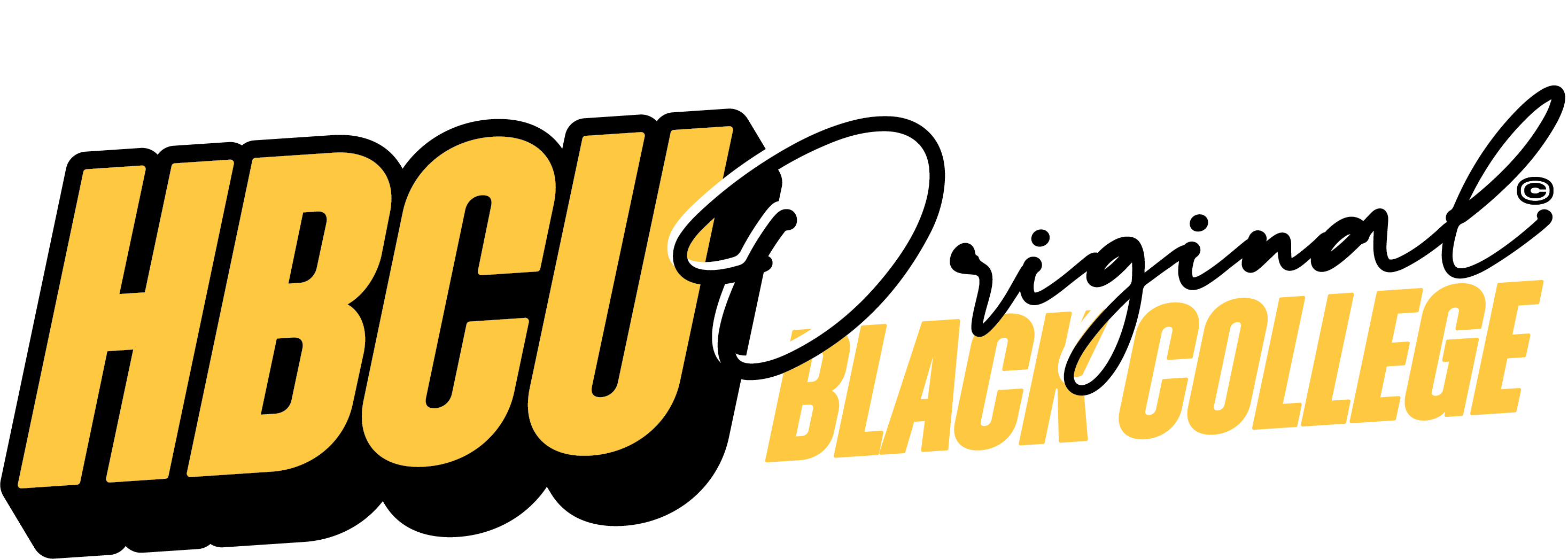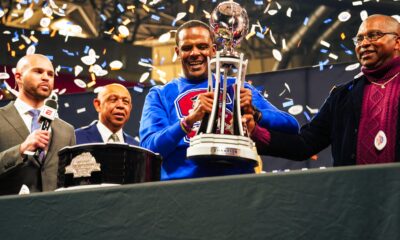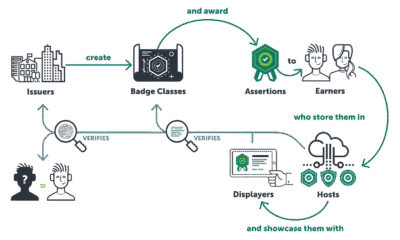Sports
David Wright III: A Tampa-Bred Star Shines in the SIAC Spotlight
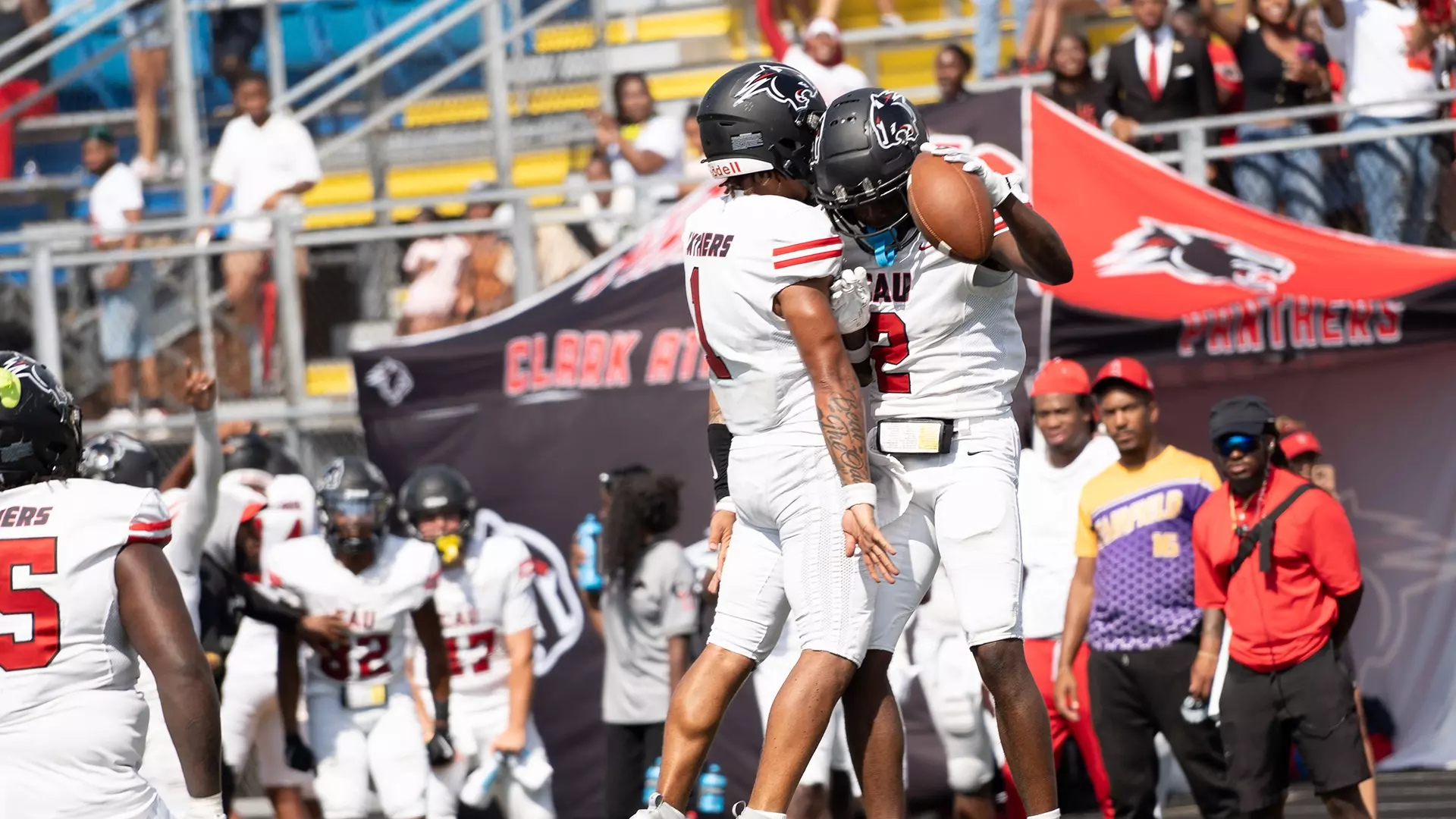
David Wright III, Clark Atlanta University’s electrifying quarterback, has achieved what few can boast—winning back-to-back SIAC Overall Player of the Year awards. His standout 2024 season, where he passed for 2,915 yards (ranking fifth nationally in Division II) and threw 28 touchdowns, has solidified his status as one of the most exciting players in college football. Wright’s incredible journey from Tampa Bay Tech High School to Clark Atlanta is a testament to his resilience, work ethic, and talent.
As a quarterback who transcends expectations, Wright, who began his college career at Allen University, transferred to Clark Atlanta with a vision: to elevate his game and lead his team to prominence. This year, he completed 62% of his passes and continued to develop into a dual-threat weapon. Known for his ability to extend plays, his pocket instincts, and a cannon of an arm, Wright is the definition of a playmaker. Scouts rave about his accuracy, mobility, and ability to hit his receivers in stride, particularly on mid-range throws, earning him the nickname “Midrange Maestro.” His Tampa roots shared with Ronnie West, Clark Atlanta’s star receiver, have helped forge an unstoppable connection on the field. The Tampa duo has become a dynamic pairing, transforming the Panthers’ aerial attack into one of the most lethal in the conference.

Wright’s success stands out in a season filled with remarkable SIAC performances. Albany State quarterback Isaiah Knowles captured Offensive Player of the Year honors after throwing for 2,555 yards and a league-high 32 touchdowns. Meanwhile, Lashon Young of Miles College earned Defensive Player of the Year, leading all of Division II with seven interceptions, showcasing the caliber of defensive talent in the SIAC.
Albany State’s freshman running back Tiant Wyche and Allen University’s newcomer Jamir Dismukes also made waves, with Wyche excelling as a dual-threat rusher and returner and Dismukes adding six touchdowns to Allen’s offensive efforts. Rounding out the awards, Miles head coach Sam Shade was named Coach of the Year for leading the Golden Bears to an 8-0 conference record.
As the NFL Draft looms, Wright III’s football journey is a compelling narrative of grit, growth, and undeniable talent. Wright’s on-field dominance has drawn comparisons to Arizona Cardinals quarterback Kyler Murray. Scouts praise Wright’s ability to operate under pressure, lightning-quick release, and knack for threading tight windows. While some critics cite his frame as a limitation, Wright has consistently proven that size is no barrier to success. His leadership and poise have made him a late-round steal prospect, with NFL teams undoubtedly taking notice.

With back-to-back SIAC Player of the Year awards, Wright is ready to carry the HBCU on his back as he could hoist the stature again. With standout performances like Wright’s, the conference continues to demonstrate that it can produce elite athletes ready for the national stage. His success at Clark Atlanta is part of a more significant trend of HBCUs reclaiming their place in the national spotlight. From producing NFL talents like Tariq Cohen and Shaquille Leonard to showcasing high-level competition in events like the Celebration Bowl, HBCUs are earning widespread respect. Players like Wright represent their schools and highlight the quality of coaching, competition, and development within HBCU programs. The growing visibility of HBCU athletes is also supported by initiatives such as the NFL’s HBCU Combine and partnerships with major media networks. These platforms ensure players like Wright can showcase their skills to NFL scouts, reinforcing that HBCUs remain a vital pipeline of football talent.
With stars like Wright leading the charge, the legacy of HBCU football is entering a new golden era—where its athletes make history and inspire future generations to carry the torch forward.
HBCU ORIGINAL
🦁🐺 HBCU Original — Lincoln & Cheyney Deliver Big Performances at Widener Schuylkill Showdown
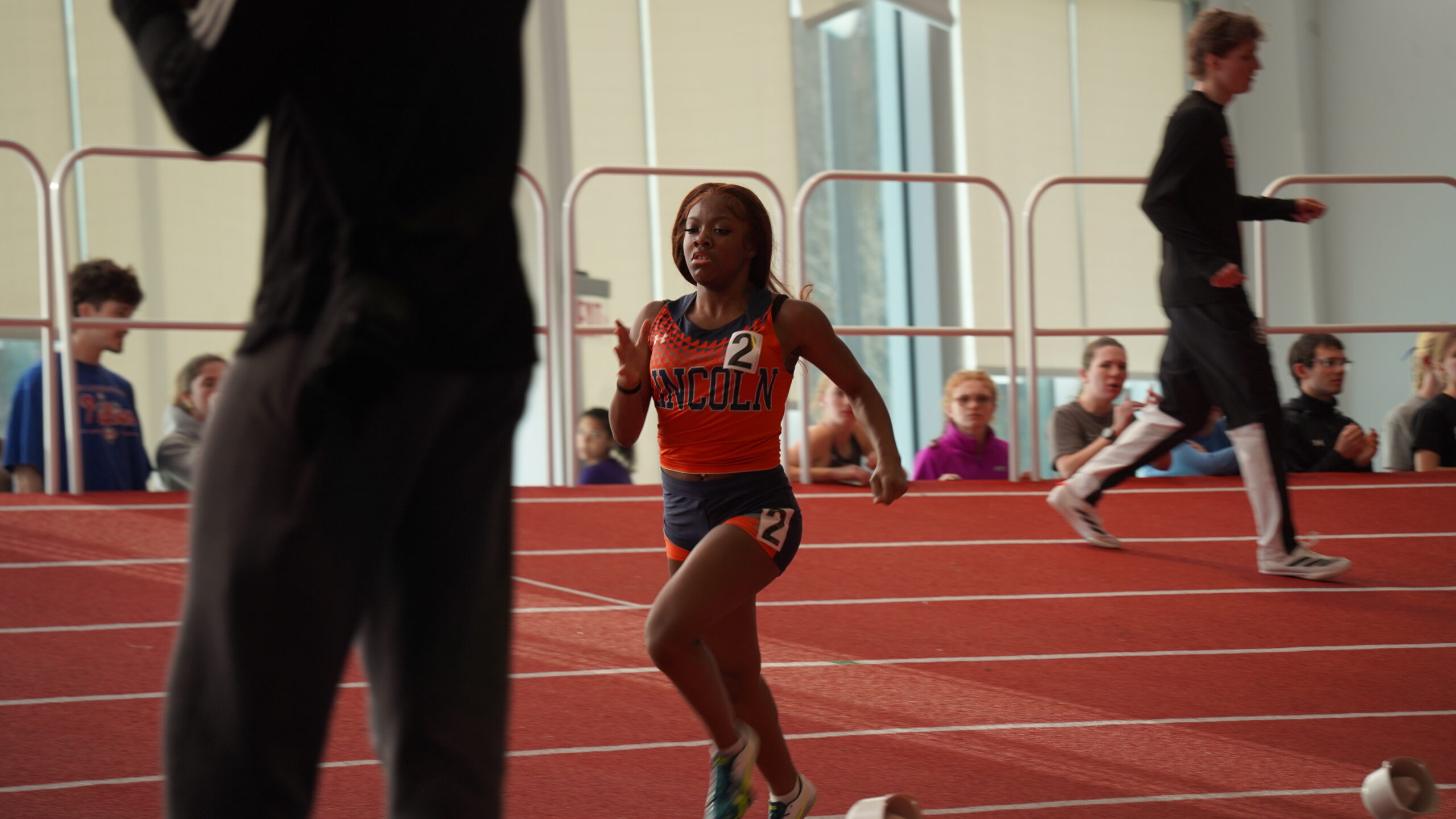
Philadelphia, PA — The Widener Schuylkill Showdown (Jan. 31–Feb. 1, 2026) at the Jane & David Ott Center served as a proving ground for regional indoor track & field talent, and HBCU programs Lincoln University (PA) and Cheyney University (PA) rose to the challenge with standout performances across sprints, hurdles, relays, jumps, middle distance, and throws.
🔥 Lincoln University (PA) Puts HBCU Track on Notice
Lincoln University delivered one of the most complete HBCU performances of the meet, highlighted by elite sprinting, record-setting marks, and relay dominance.
🥇 Men’s 4×400 Meter Relay — MEET HIGHLIGHT
Lincoln’s “A” relay squad (Nasir Scott, Devin James, Sahfi Reed, Carlo Johnson) captured 1st place in 3:14.87, earning:
-
Meet win
-
New HBCU #11
-
New NCAA DII #19
The Lions also showed depth with a “B” relay clocking 3:27.23, while a third squad was entered.
⚡ Sprint Power: Men’s 200m
Lincoln sprinters dominated the 200 meters with nationally ranked HBCU marks:
-
Devin James (FR) — 21.78 (New HBCU #52, New DII #75, Season Best)
-
Sahfi Reed (SO) — 21.85 (New HBCU #60, New DII #94)
-
Carlo Johnson (FR) — 21.87 (PR, New HBCU #64, New DII #98)
This trio solidified Lincoln as one of the fastest HBCU sprint groups indoors.
🏃♂️ 400m Strength
-
Nasir Scott (SR) — 50.49 (Season Best)
-
Lamine Kane (SO) — 51.04
-
Malachi Williams (SO) — 52.42
🚧 Hurdles & Jumps
Men’s 60m Hurdles
-
Terry McNeil (SR) — 8.44
-
Adam Green (JR) — 8.67
-
Sayeed Buie (FR) — 8.95
-
Jayden Jones (FR) — 9.81
Men’s High Jump
-
Adam Green (JR) — 1.83m (6-00.00)
Men’s Long Jump
-
Tehuti Cononver (SO) — 6.67m (21-10.75) (New HBCU #69)
-
Adam Green (JR) — 6.50m (21-04.00)
🏃♀️ Women’s Track Highlights
Women’s 60m
-
Darriel Whiting (FR) — 7.90
-
Shanna Todman (SO) — 8.52
Women’s 400m
-
Dayshana Kellogg (FR) — 59.25
-
Kenya Williams (SO) — 1:02.74 (PR)
-
Daleeah Alexander (FR) — 1:03.96
-
Paris Talley (JR) — 1:04.35
Women’s 800m
-
Aniya Whitfield (JR) — 2:31.78
-
Eternity Bellamy (SO) — 2:49.25
🏃♀️ Distance & Triple Jump Excellence
Men’s Mile
-
Thomas Jones (SO) — 4:34.92 (PR, New HBCU #41)
Women’s Mile
-
Madison Morgan (SO) — 6:01.69 (New HBCU #70)
-
Miranda McLean (JR) — 6:11.36 (New HBCU #80)
-
Isabella Wright (SO) — *6:29.02 (PR, New HBCU #88)
Women’s Triple Jump
-
Gabrielle Lanier (SO) — 11.27m (36-11.75)
2nd place | New HBCU #43 | New DII #80 | Season Best
🔁 Women’s 4×400 Relays
-
Lincoln “A” — 4:04.26 (New HBCU #28, New DII #86)
(Whiting, Whitfield, K. Williams, Kellogg) -
Lincoln “B” — 4:13.86
🐺 Cheyney University (PA) Shows Growth & Freshman Impact
Cheyney University competed across sprints, middle distance, jumps, and throws, with freshmen playing key roles.
⭐ Top Highlight
Women’s Long Jump
-
Opeyemi Ojo (FR) — 5th place, 5.10m (16-08.75)
Personal Record
Ojo also doubled on the track:
-
Women’s 60m — 8.57
🏃♂️ Men’s 800m
-
Yasir Logan (FR) — 2:12.16
🏋️ Throws
Men’s Shot Put
-
Benjamin Bell (JR) — 8.50m (27-10.75)
Women’s Shot Put
-
Kimberly Arias (FR) — 9.46m
-
MyAngel Salisbury (FR) — 9.32m
-
Demetria Williams (FR) — 6.24m
Cheyney’s participation across multiple disciplines reflects a program building depth and competitive confidence.
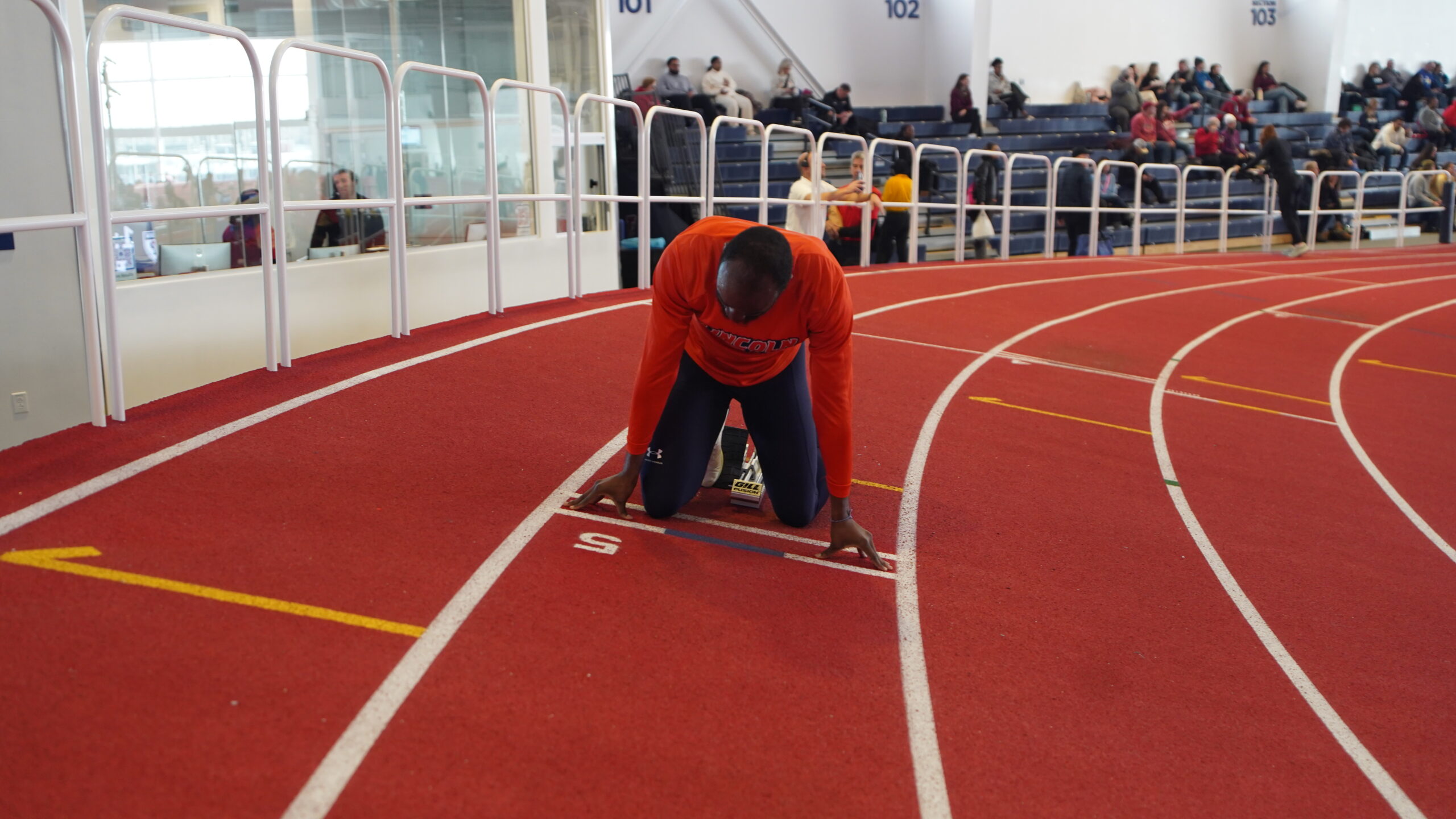
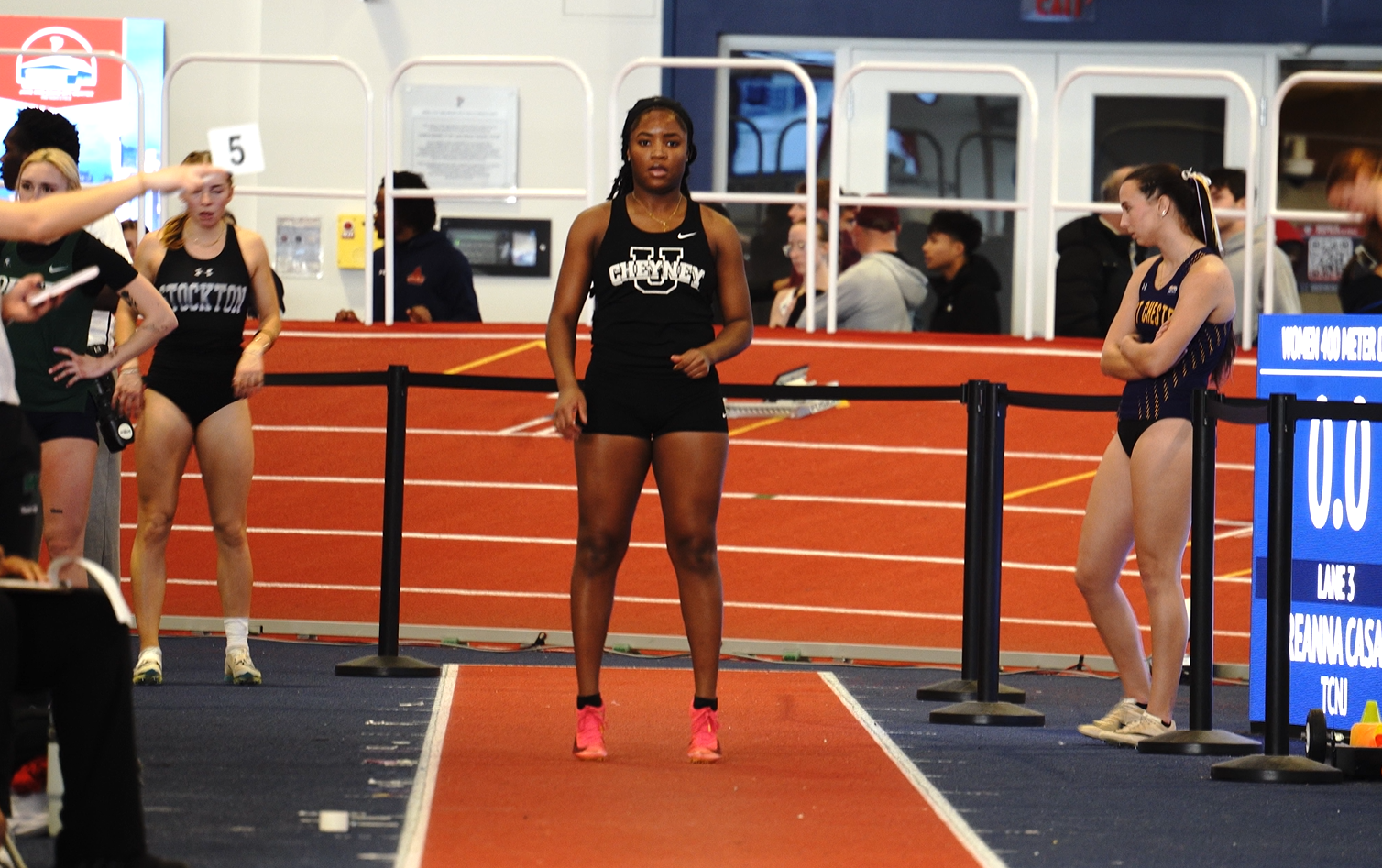
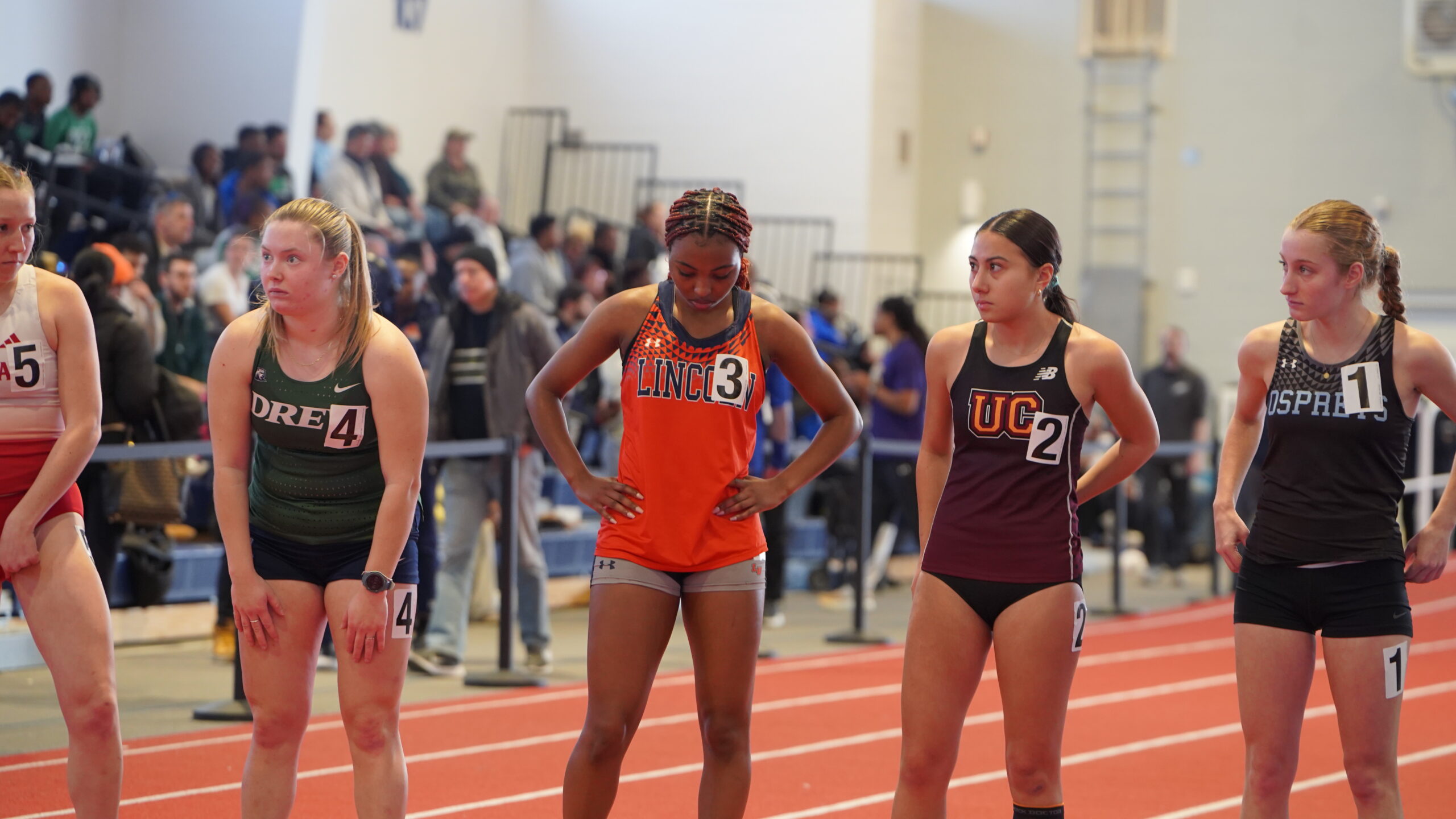
HBCU ORIGINAL
Tuskegee Coach Benjy Taylor Escorted Off Court in Handcuffs After Postgame Incident
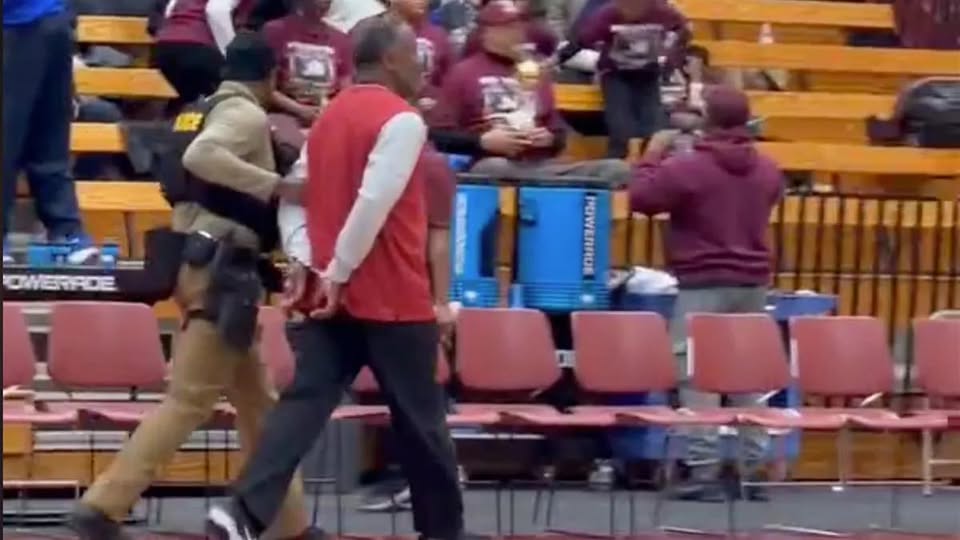
Tuskegee Coach Benjy Taylor Escorted Off Court in Handcuffs After Postgame Incident
Credit: HBCU Gameday
Tuskegee University men’s basketball coach Benjy Taylor was escorted off the court in handcuffs following a postgame incident Saturday at Morehouse College’s Forbes Arena.
Video shared by HBCU Gameday shows Taylor speaking with a security officer as Tuskegee and Morehouse players exchanged handshakes after the game. Moments later, the officer placed Taylor in handcuffs and led him off the court and into a nearby hallway.
According to statements from Taylor and Tuskegee athletic director Reginald Ruffin, the incident stemmed from Taylor asking security to remove several Morehouse football players from the handshake line. Taylor said the players were “yelling obscenities,” while Ruffin described the situation as a “security breach.”
“I am at a loss for words, and I am upset about how I was violated and treated today,” Taylor said in a statement released Saturday. “For my players, my family and people of Tuskegee to witness that is heartbreaking for me.
“I was simply trying to get the football team out of the handshake line as they were following right behind me and the team yelling obscenities. It was a very dangerous situation.”
Ruffin told HBCU Gameday that the security officer involved provided a different account, claiming Taylor was “very aggressive.” Ruffin said he disagreed with that assessment, citing conference-mandated security protocols and stating that Taylor’s actions were reasonable.
“He asked the security officer, ‘Can you please remove them from the line?’ That’s what he asked,” Ruffin said.
Civil rights attorney Harry Daniels announced Sunday that Taylor has retained him to explore a potential lawsuit. In a statement, Daniels said the Morehouse football players were “acting aggressively” toward Tuskegee players and their families and that their presence on the court violated conference security policies.
“When Coach Taylor asked officers to enforce those protocols and defuse an increasingly dangerous situation, one of the officers instead chose to place him in handcuffs and escort him from the court,” Daniels said.
As of Monday, it was unclear which law enforcement agency the security officer represents. Taylor has not been charged with a crime, according to Daniels’ office. Tuskegee University confirmed that Taylor traveled back with the team following the game.
Taylor, who is in his sixth season as head coach, declined further comment Sunday, telling USA Today, “I am devastated and will have no more comments at this time.”
Tuskegee fell to 15–5 on the season following its 77–69 loss to Morehouse.
“It would be bad for a police officer to treat anyone this way,” Daniels said. “But to do it to a highly respected coach and role model—handcuffing and humiliating him in front of his players, family and fans—is absolutely unacceptable.”
Sports
Coppin State Hosts No. 2 South Carolina in Baltimore
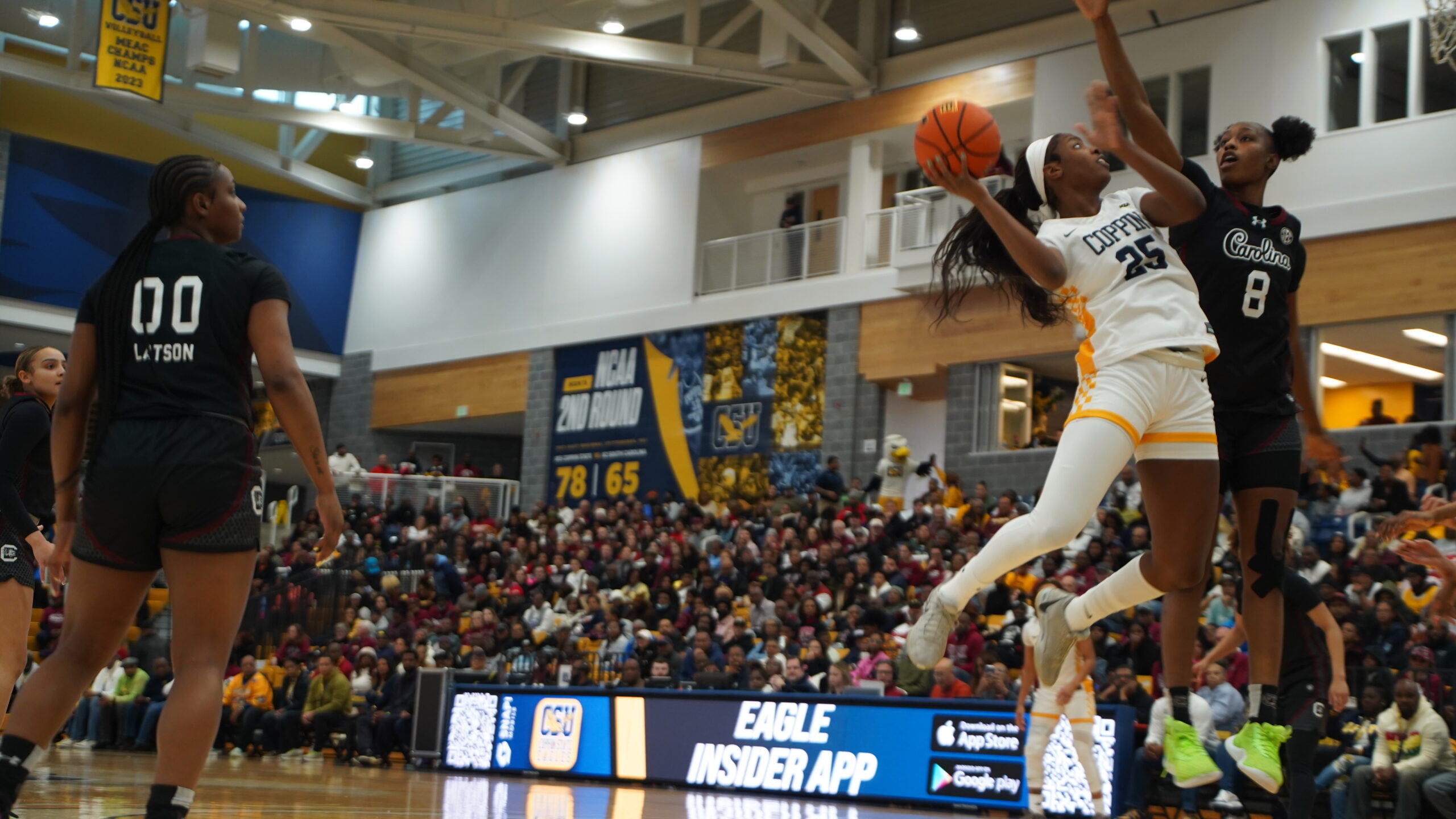
By HBCU Original Staff | Jan. 18, 2026
BALTIMORE — Coppin State welcomed No. 2 South Carolina on Sunday, giving HBCU fans a rare opportunity to see top-tier college basketball in their own backyard. More than 3,300 fans packed the Physical Education Complex, marking the second-largest home crowd in school history. HBCU Original was on site to capture the energy, excitement, and pride of the HBCU community.
Despite a 90-48 loss, the Eagles showed heart. Senior Khila Morris led the team with 20 points, and senior Paris McBride added 12. Coppin State even held a brief 8-7 lead in the first minutes and outrebounded the taller Gamecocks 38-37, proving that grit and determination were on full display.
The game was more than just basketball. Former Eagles star Denikwa James returned to support her alma mater, while Baltimore Mayor Brandon Scott took a courtside seat to celebrate HBCU athletics and community impact. Fans of all ages filled the stands early, some lining up hours before tipoff to make sure they didn’t miss the historic matchup. The atmosphere was electric, with chants, cheers, and proud displays of Coppin State gear throughout the arena.
Dawn Staley and her South Carolina squad brought national attention to Coppin State, but the focus remained on the Eagles’ program and the HBCU community. Staley spent more than 30 minutes signing autographs and taking photos, highlighting the respect and visibility these games bring to HBCUs.
Coppin State coach Darrell Mosley said the experience offered his players valuable lessons. “It’s about exposure, experience, and giving our players a chance to measure themselves against top-level competition,” he said. “Games like this help build our program and show that HBCU athletes belong on the national stage.”
For fans, the event was a celebration of HBCU pride, history, and culture. “This is why we support our programs,” said longtime Coppin fan Shelley Favre. “It’s about showing up, celebrating our teams, and supporting the next generation of HBCU athletes.”
Sunday’s game was a reminder that when HBCUs host marquee events, the impact extends far beyond the scoreboard — inspiring players, energizing communities, and showcasing the talent and resilience that make HBCU sports special.
Full Game Stats
Coppin State Eagles (4-16)
-
Khila Morris: 20 points, 4 rebounds
-
Paris McBride: 12 points, 4 rebounds
-
Shanaii Gamble: 6 points, 3 rebounds
-
Team Shooting: 32.2% FG, 26.7% 3PT, 68.2% FT
-
Rebounds: 38 (15 offensive, 23 defensive)
-
Turnovers: 30
-
Steals: 0
South Carolina Gamecocks (19-1)
-
Joyce Edwards: 26 points, 5 steals, 6 rebounds
-
Tessa Johnson: 17 points, 4 assists, 2 steals (5 3-pointers)
-
Maddy McDaniel: 6 points, 5 assists, 2 rebounds
-
Alicia Tournebize: 8 points, 1 rebound, 1 block, 1 steal
-
Team Shooting: 51.5% FG, 47.4% 3PT, 79.5% FT
-
Rebounds: 37 (10 offensive, 27 defensive)
-
Turnovers Forced: 30
-
Steals: 21
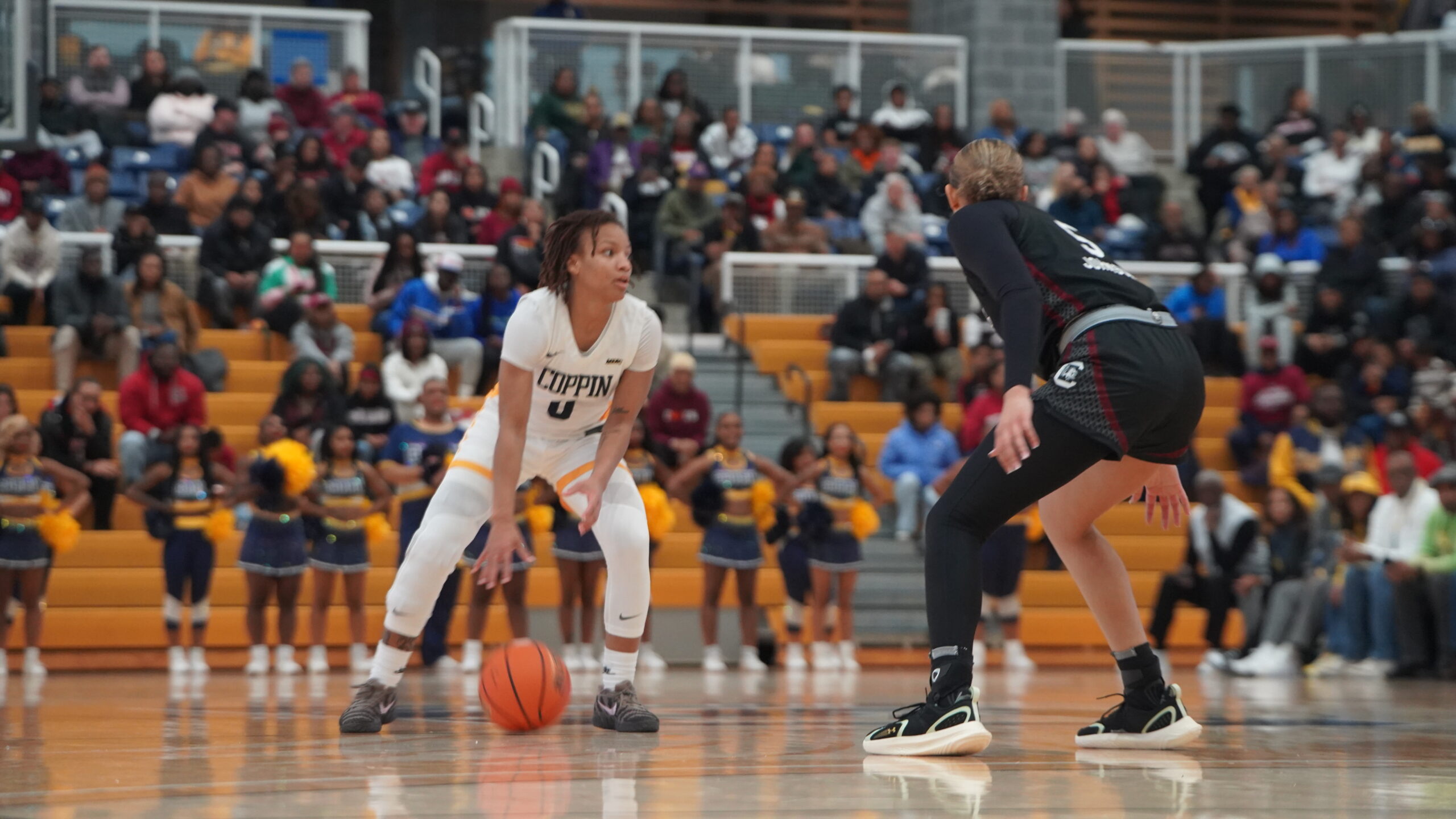
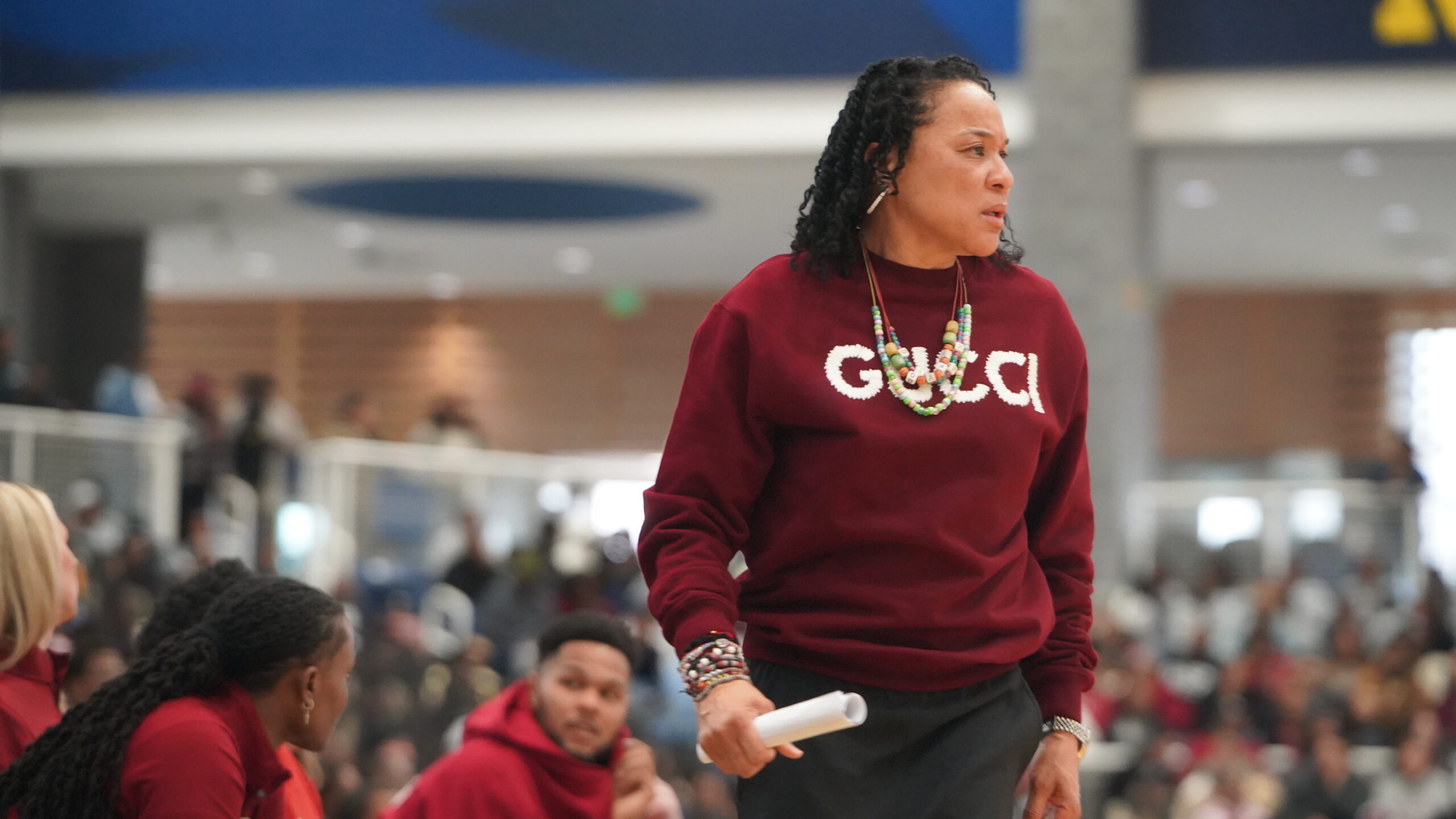
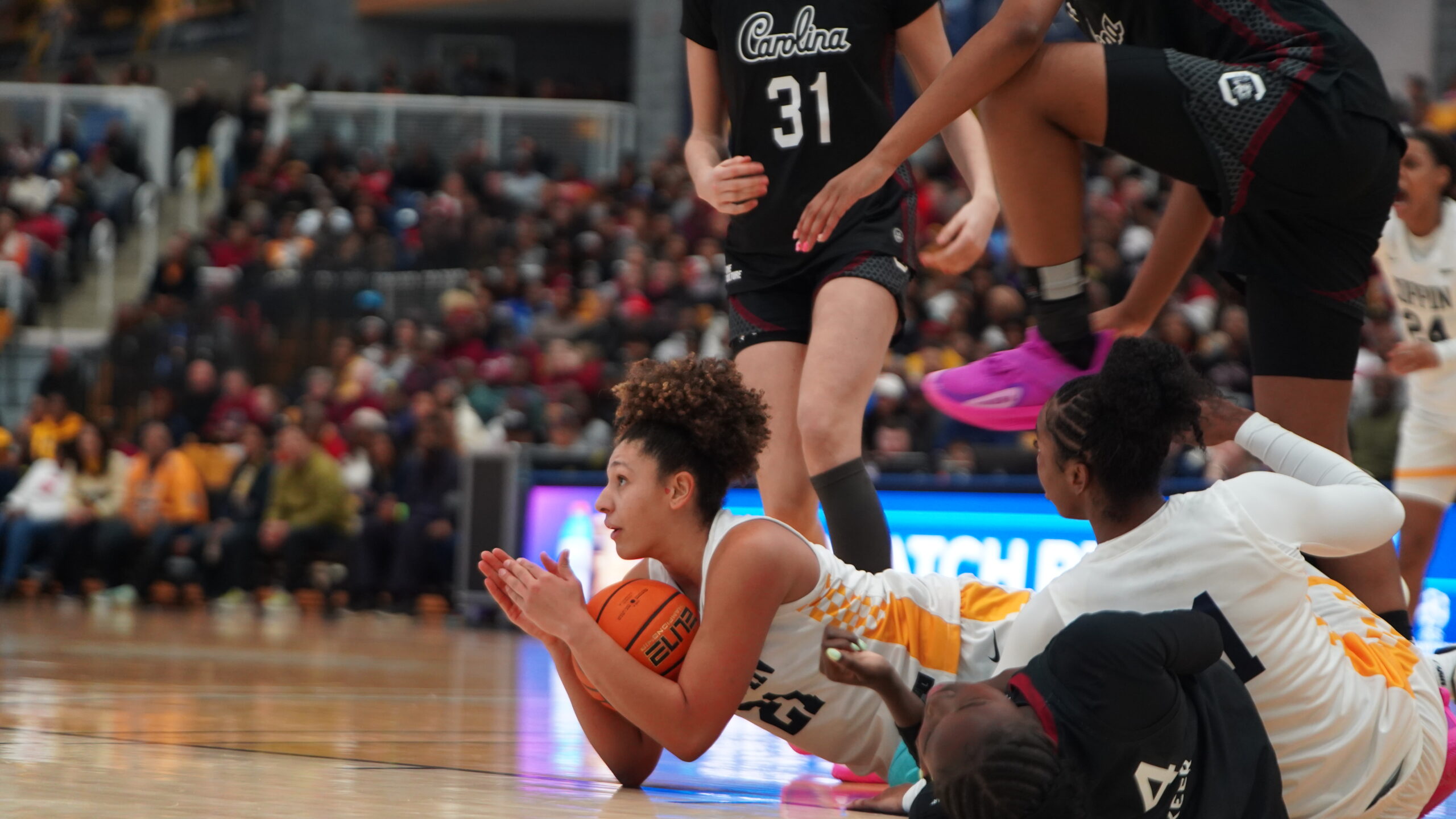
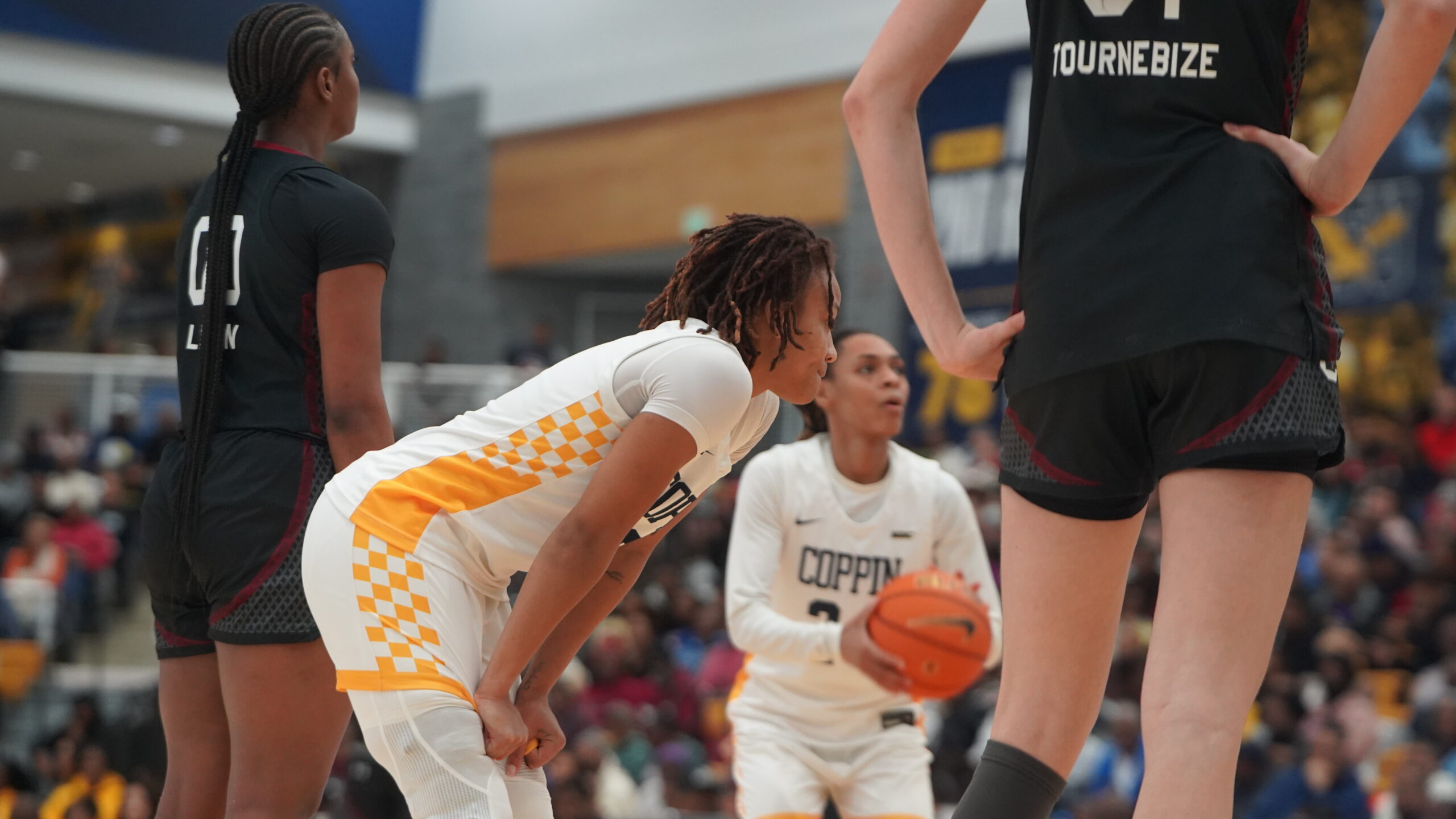
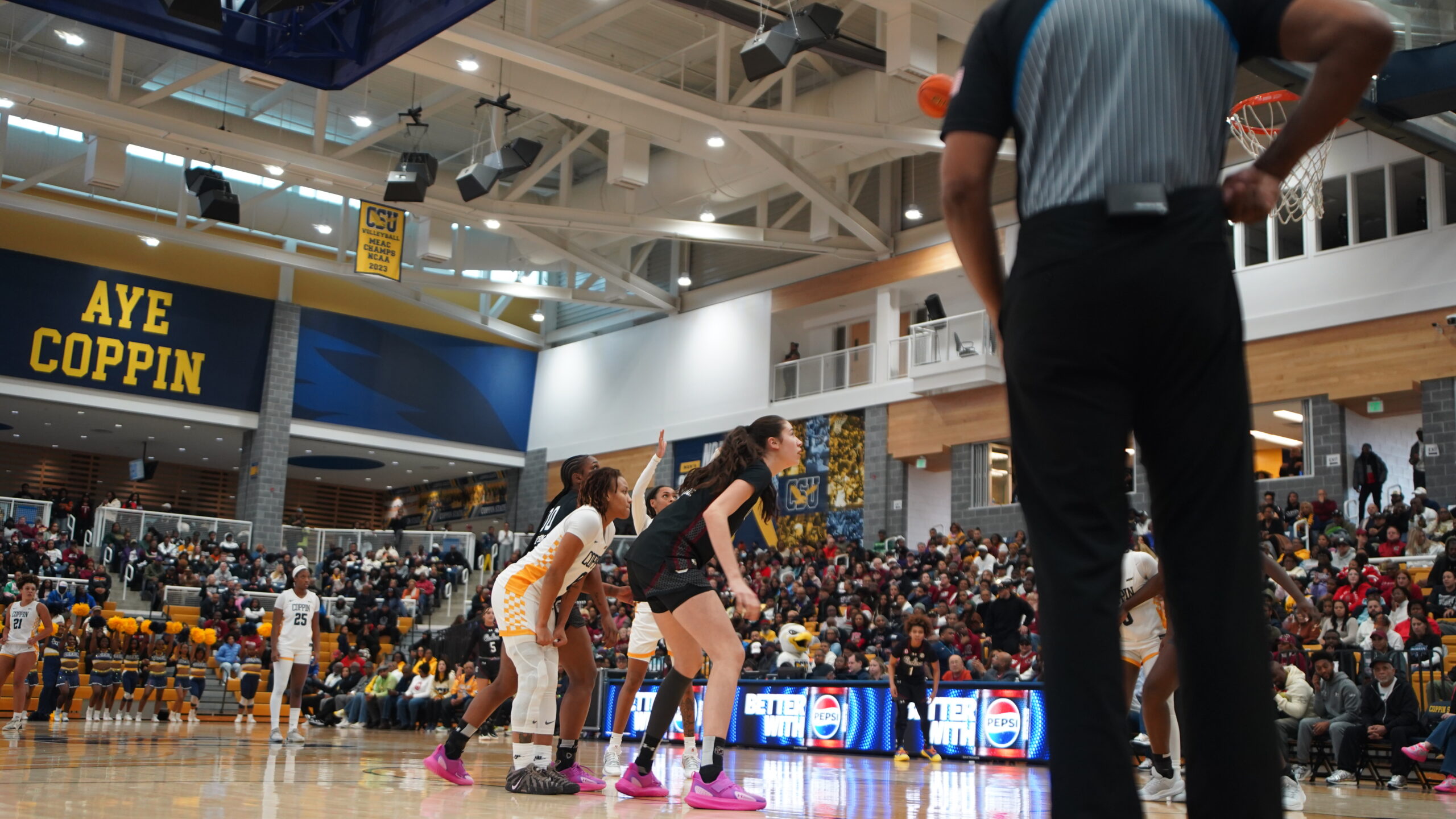
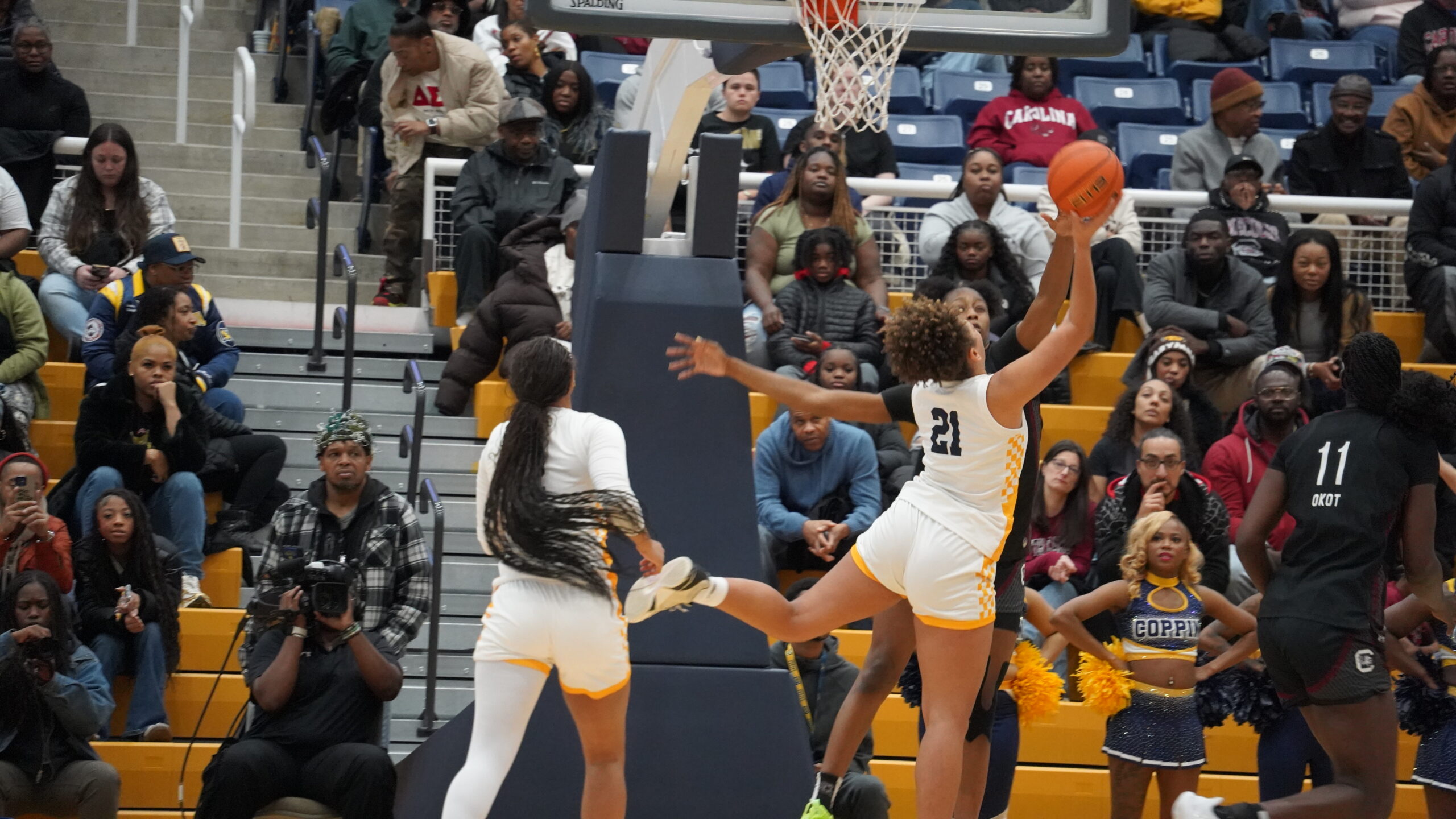
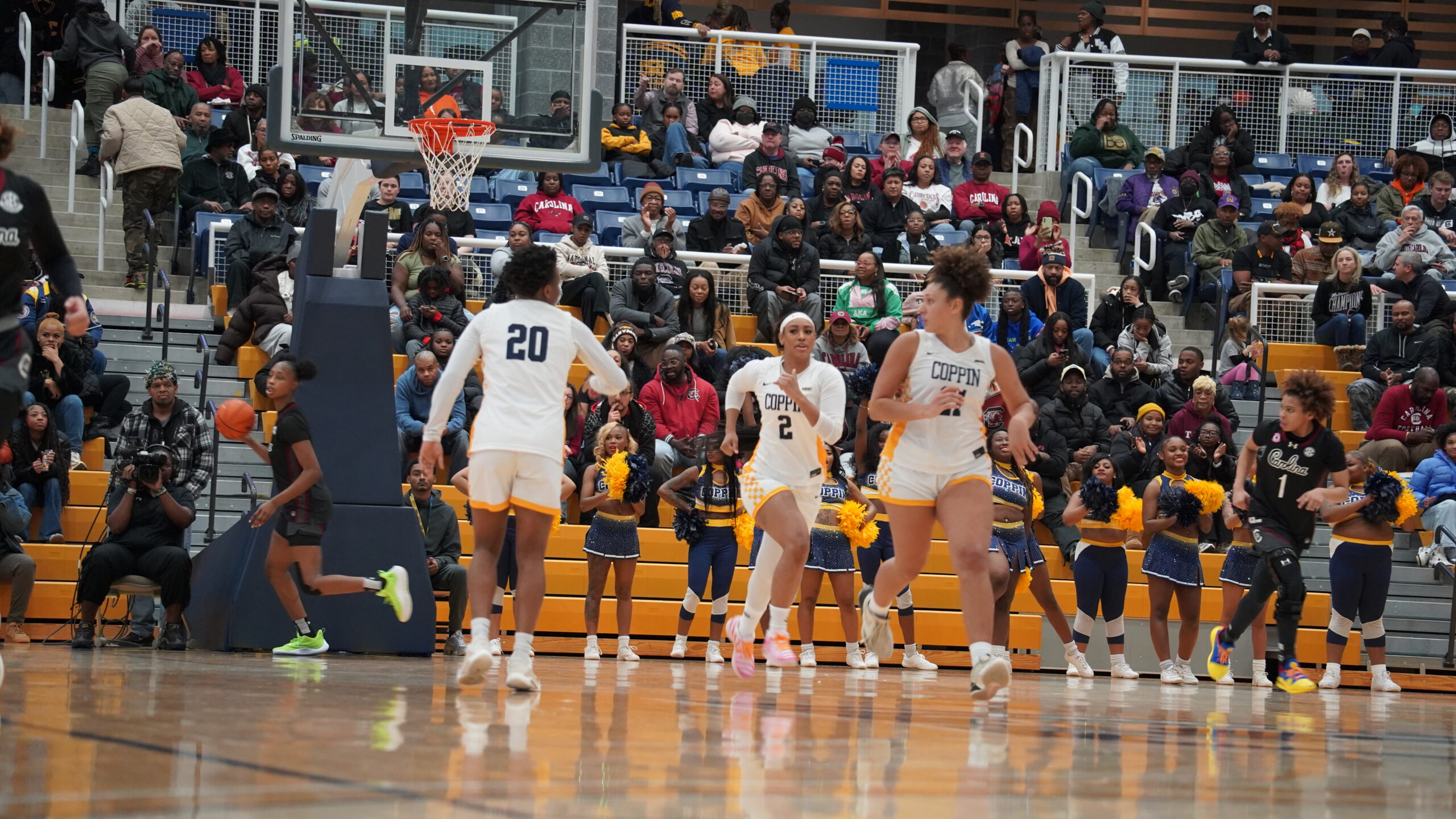
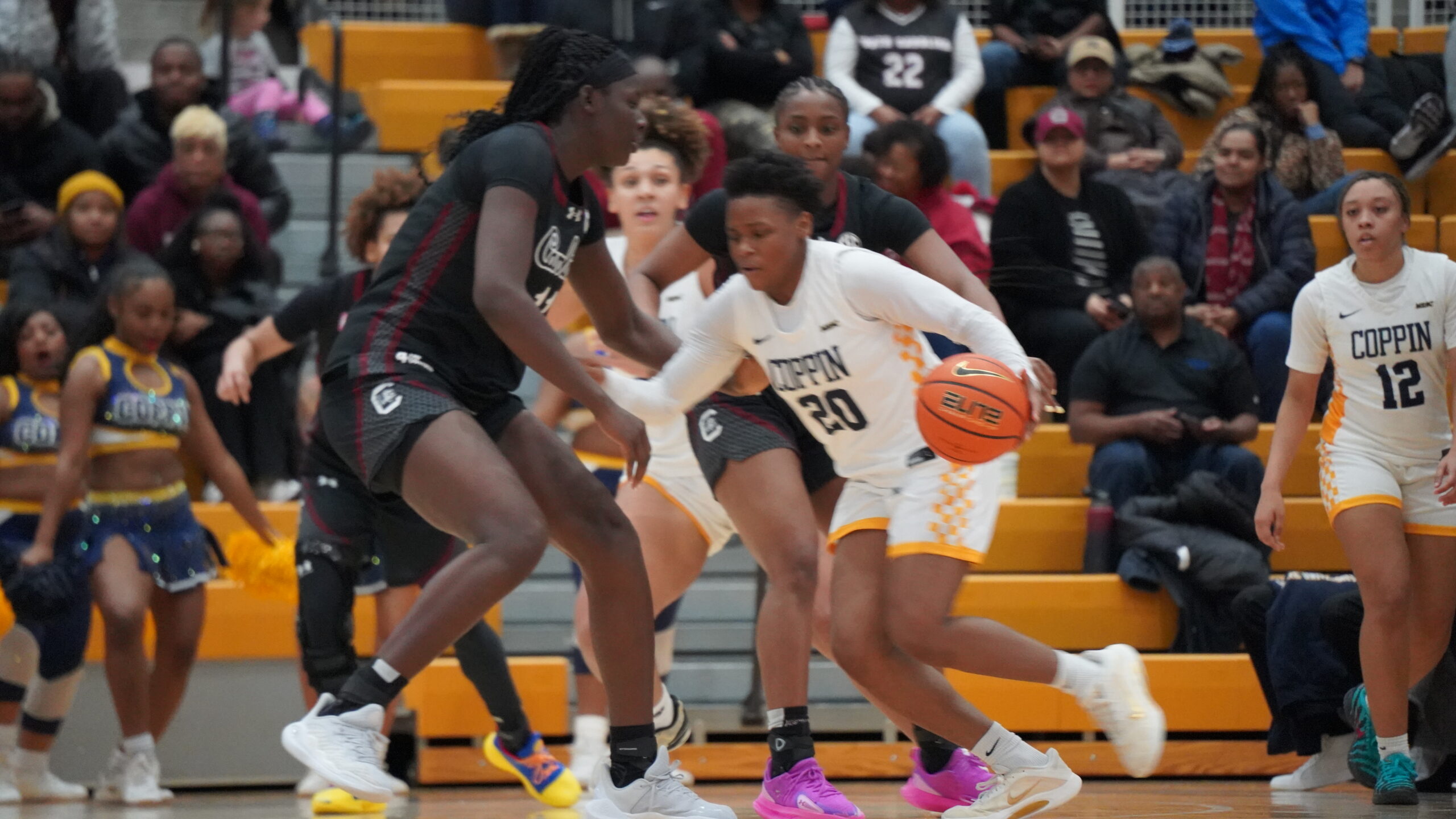
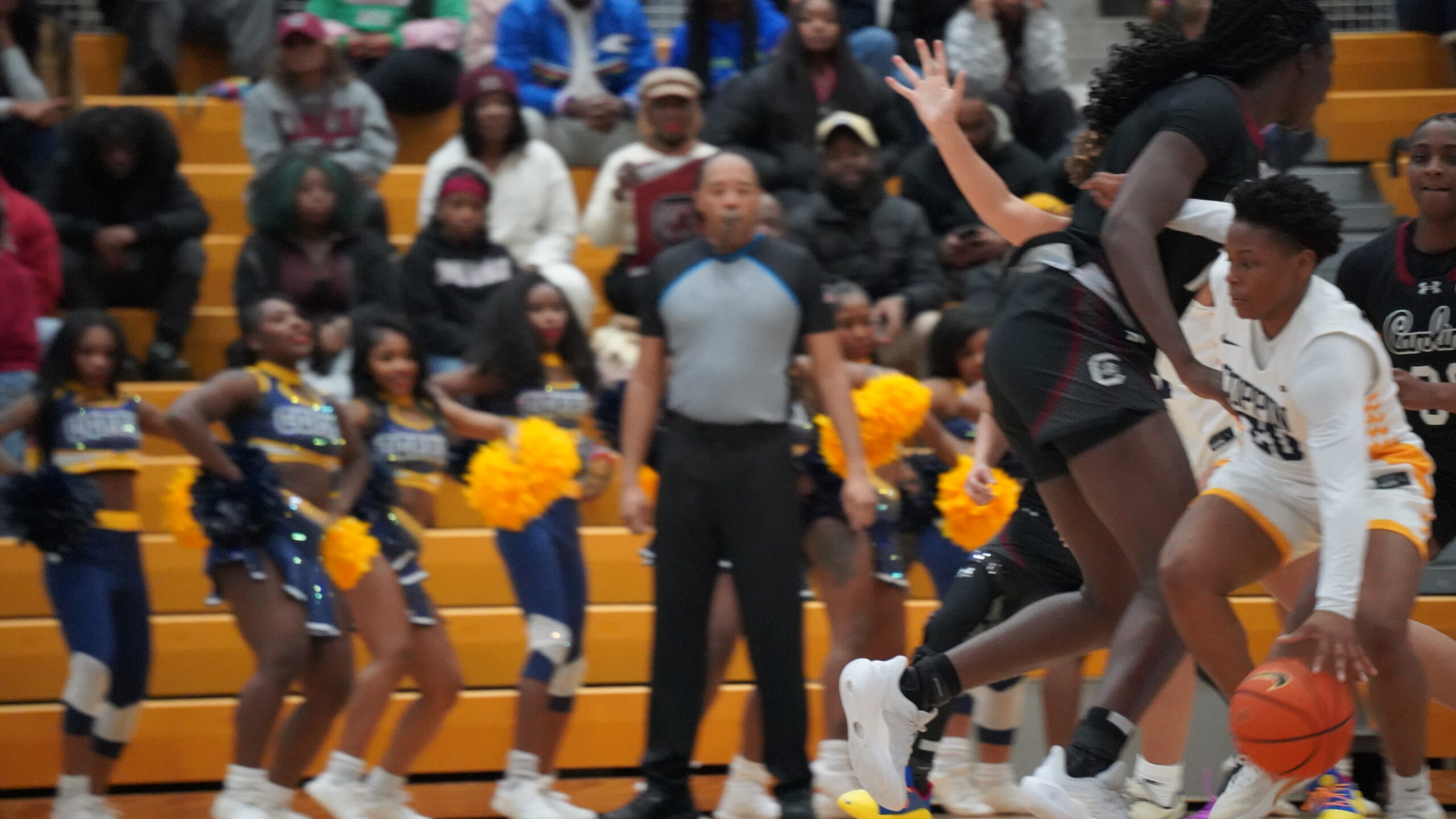
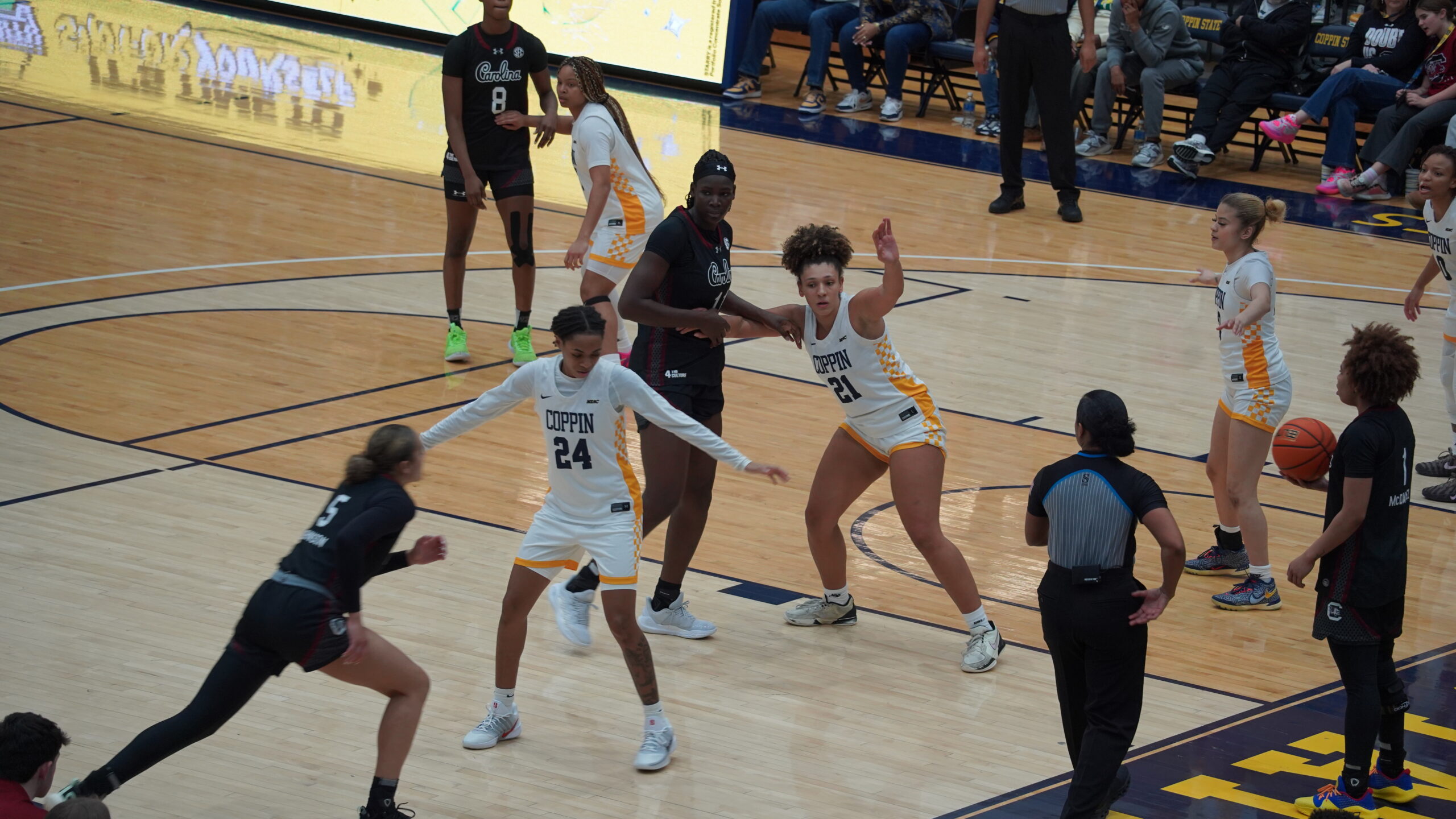
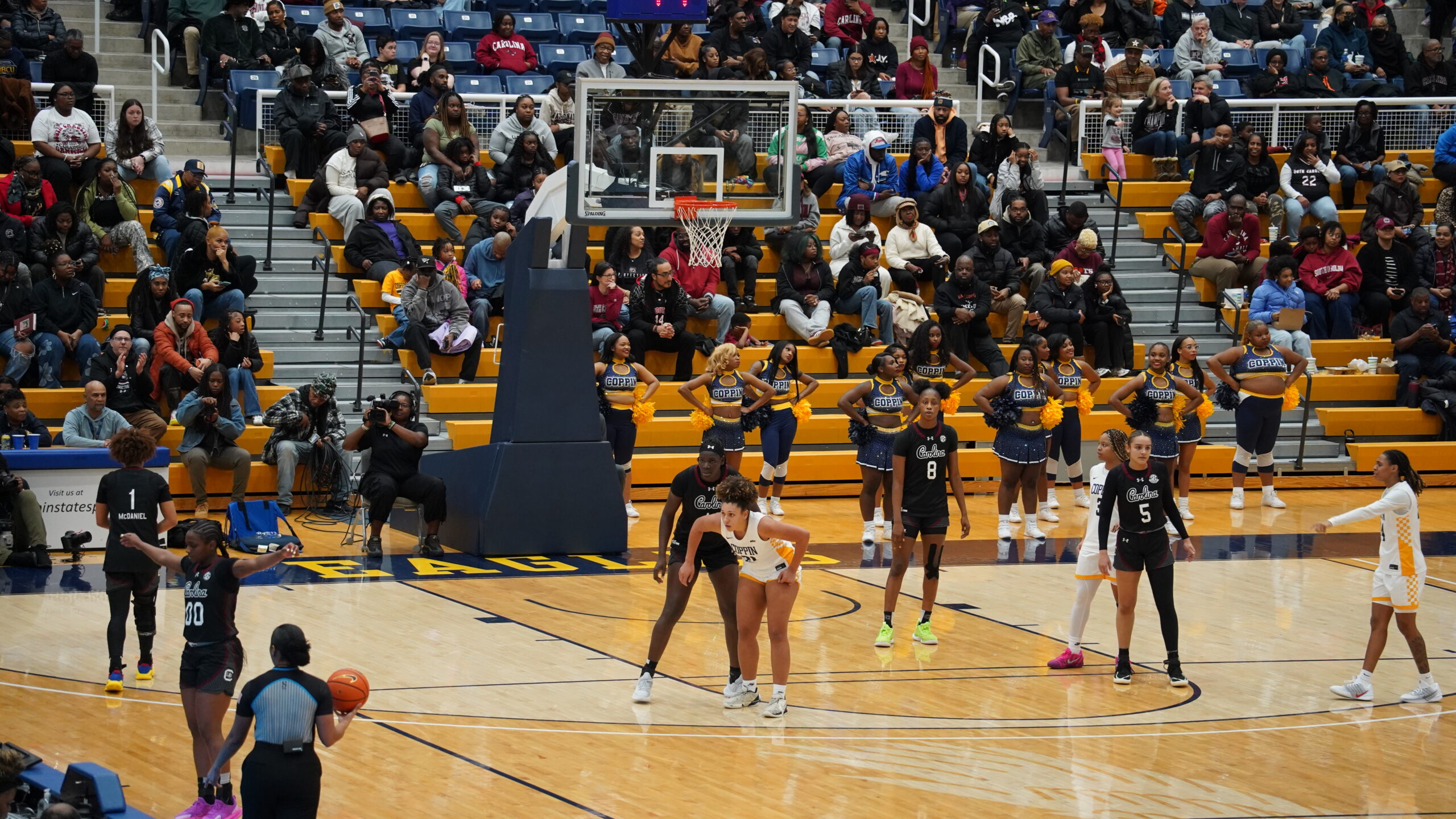
Sunday’s game was a reminder that when HBCUs host marquee events, the impact extends far beyond the scoreboard — inspiring players, energizing communities, and showcasing the talent and resilience that make HBCU sports special.
-
HBCU Original → https://www.hbcuoriginal.com
-
Coppin State → Coppin State Athletics
-
MEAC → MEAC Official Site
-
Dawn Staley → South Carolina Gamecocks WBB
HBCU ORIGINAL
Delaware State Shows Fight in Road Matchup vs Saint Joseph’s
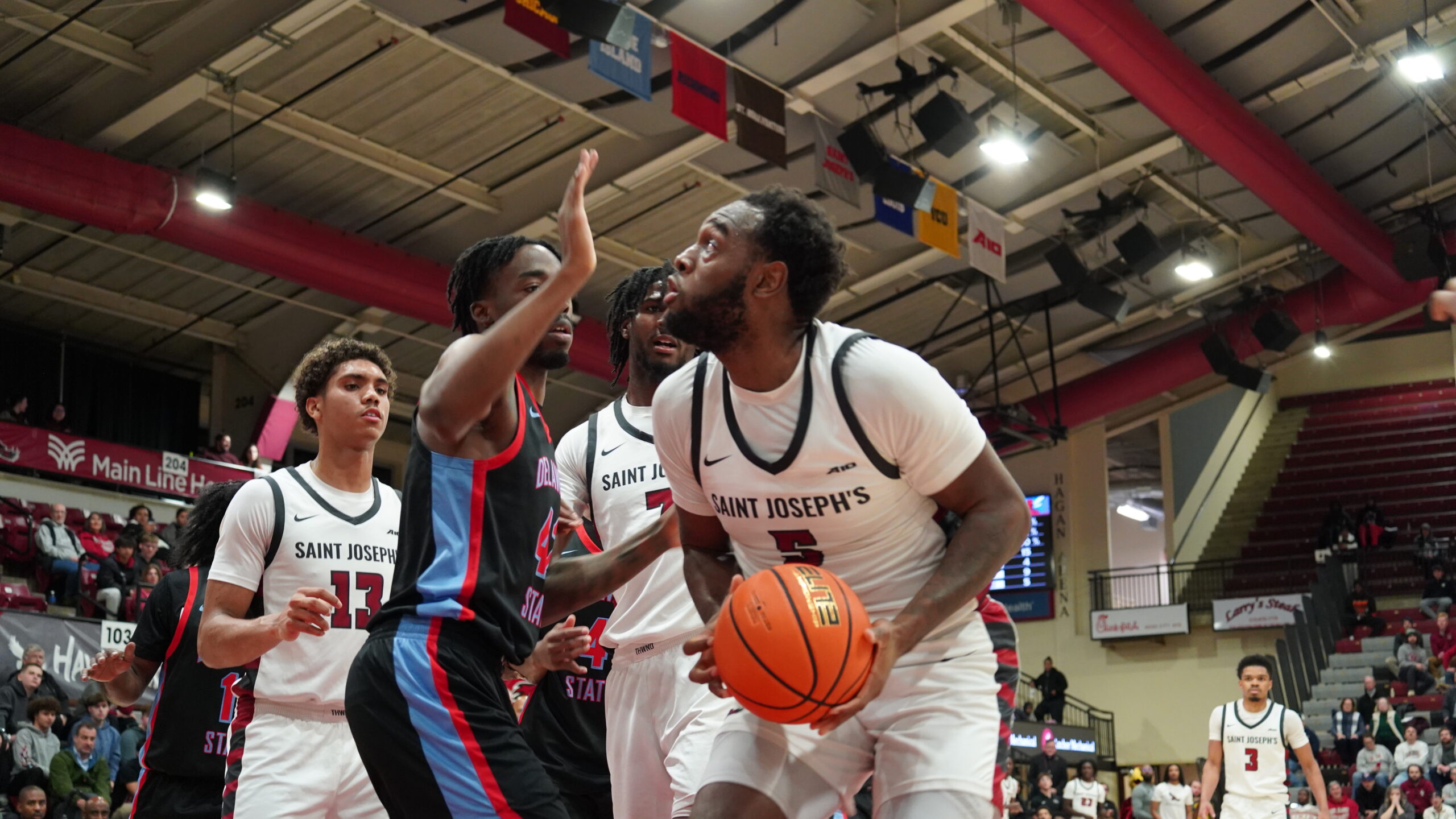
PHILADELPHIA — The Delaware State Hornets continued their non-conference slate Thursday night, facing a determined Saint Joseph’s squad in a 67–51 contest that showcased resilience, youth development, and flashes of defensive intensity from the Hornets.
After a slow shooting start, Delaware State settled in and found its rhythm midway through the first half, cutting the deficit to just three points at 15–12 following a strong response on both ends of the floor. The Hornets battled through early pressure, showing poise and defensive commitment against a hot-shooting Hawks lineup.
Saint Joseph’s took advantage of perimeter shooting early, building momentum heading into halftime, but Delaware State refused to fold. The Hornets continued to compete after the break, answering runs and playing with energy as the game progressed.
Delaware State showed improved ball movement and defensive presence in the second half, working to close the gap after Saint Joseph’s extended its lead. Despite the final margin, the Hornets’ late push reflected their persistence and growth, particularly against a short-handed but aggressive opponent.
As the season continues, Delaware State remains focused on building chemistry, tightening execution, and turning these competitive moments into wins as conference play approaches.
Final Score: Saint Joseph’s 67, Delaware State 51
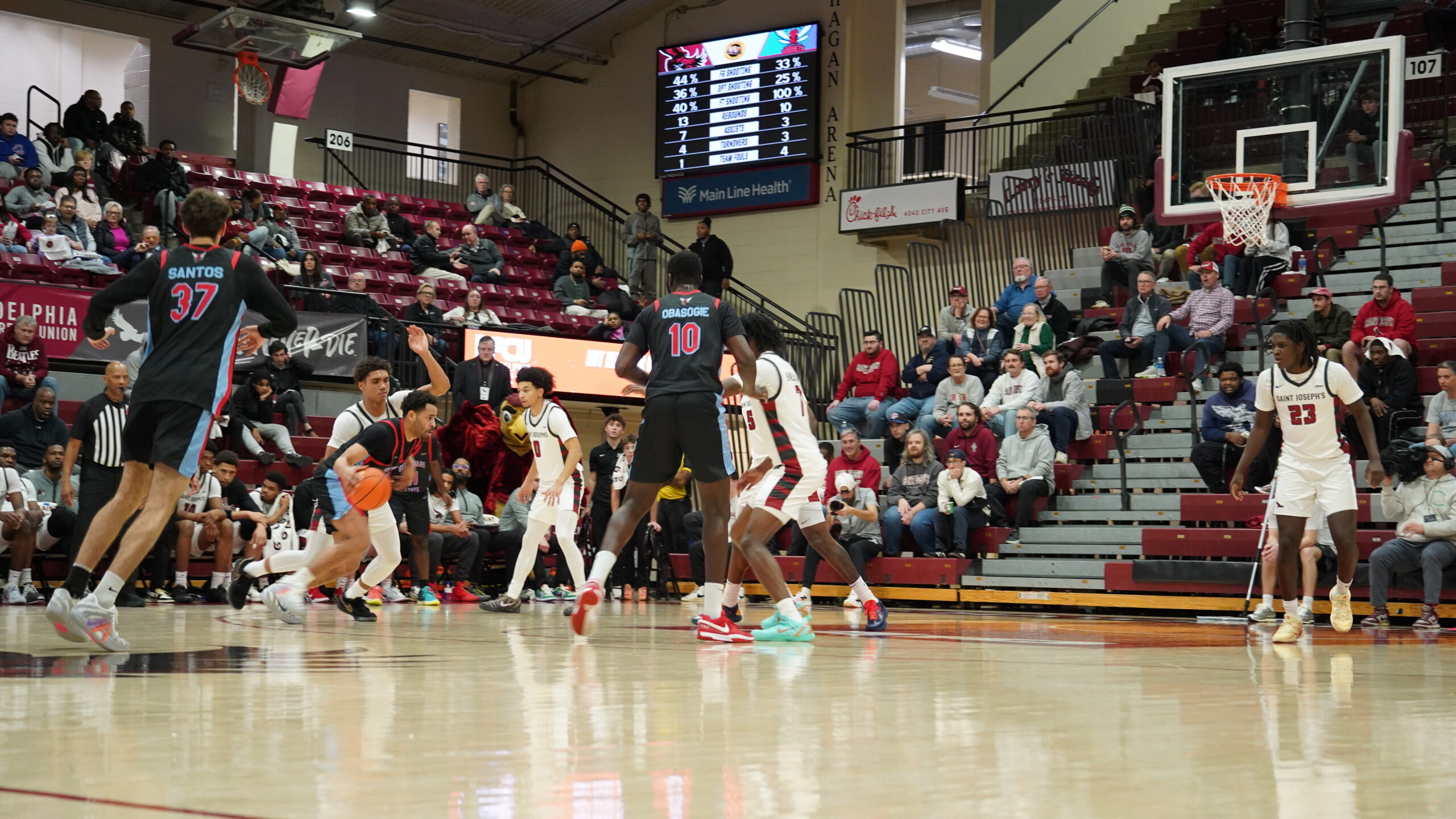
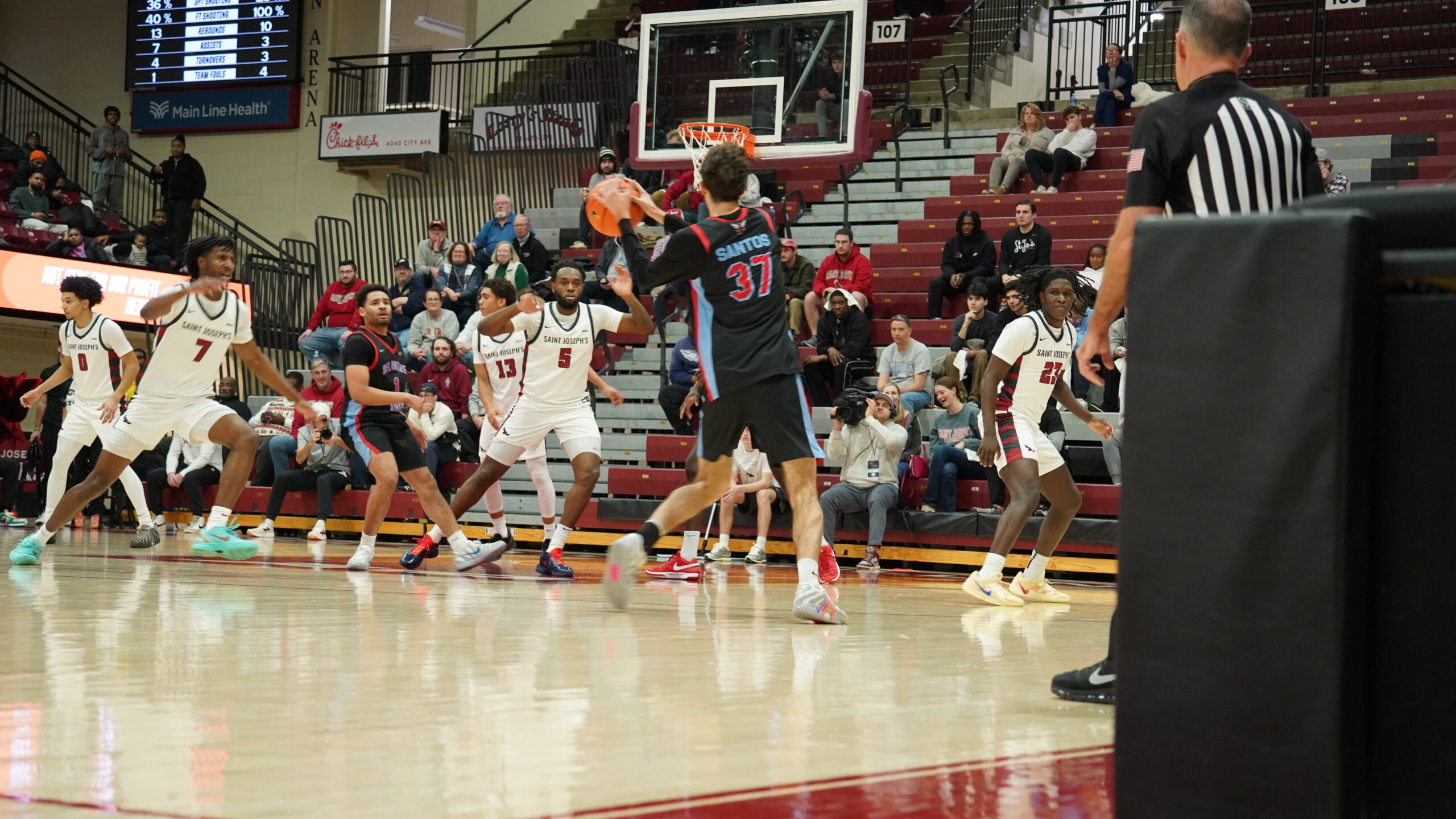
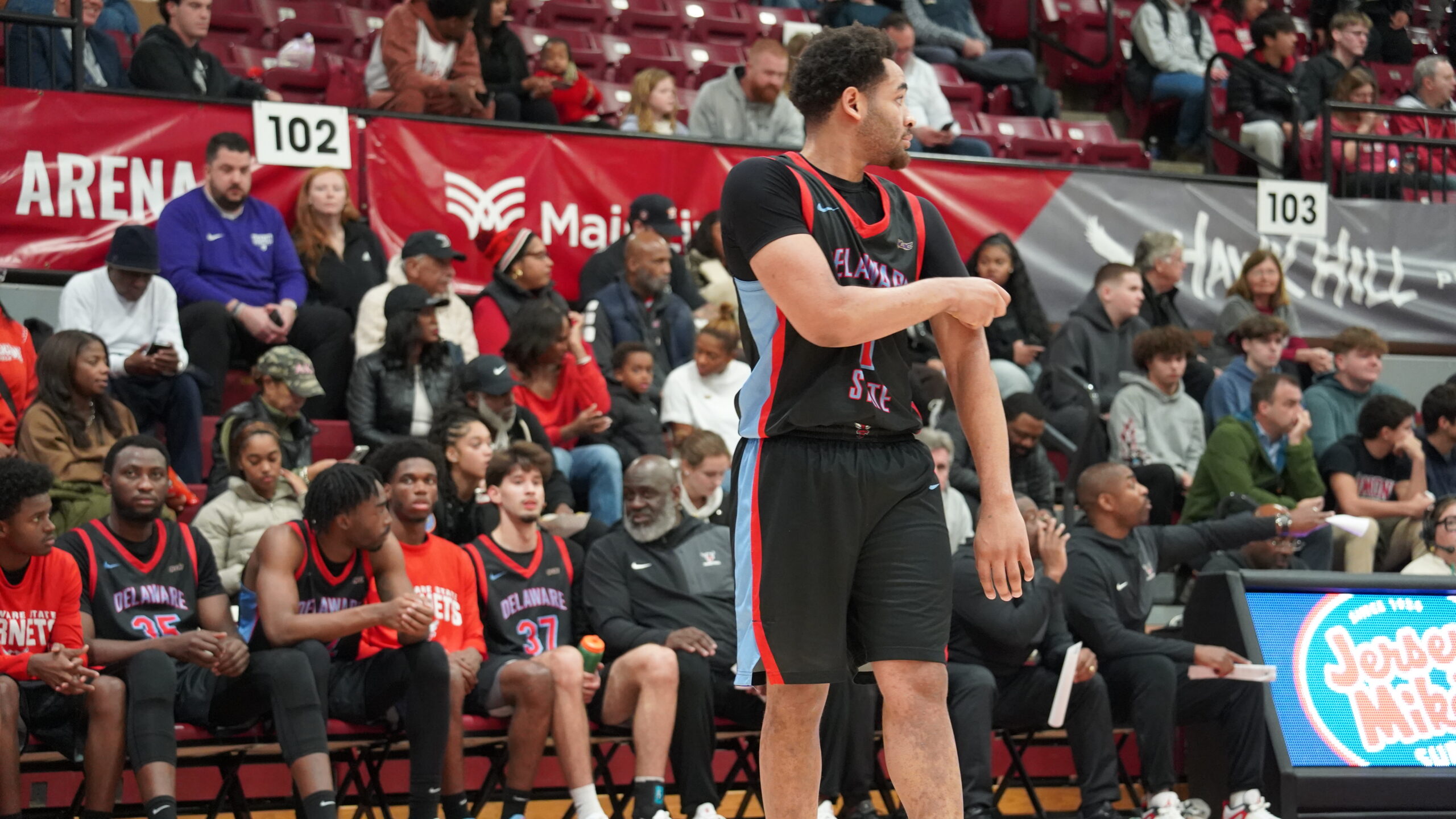
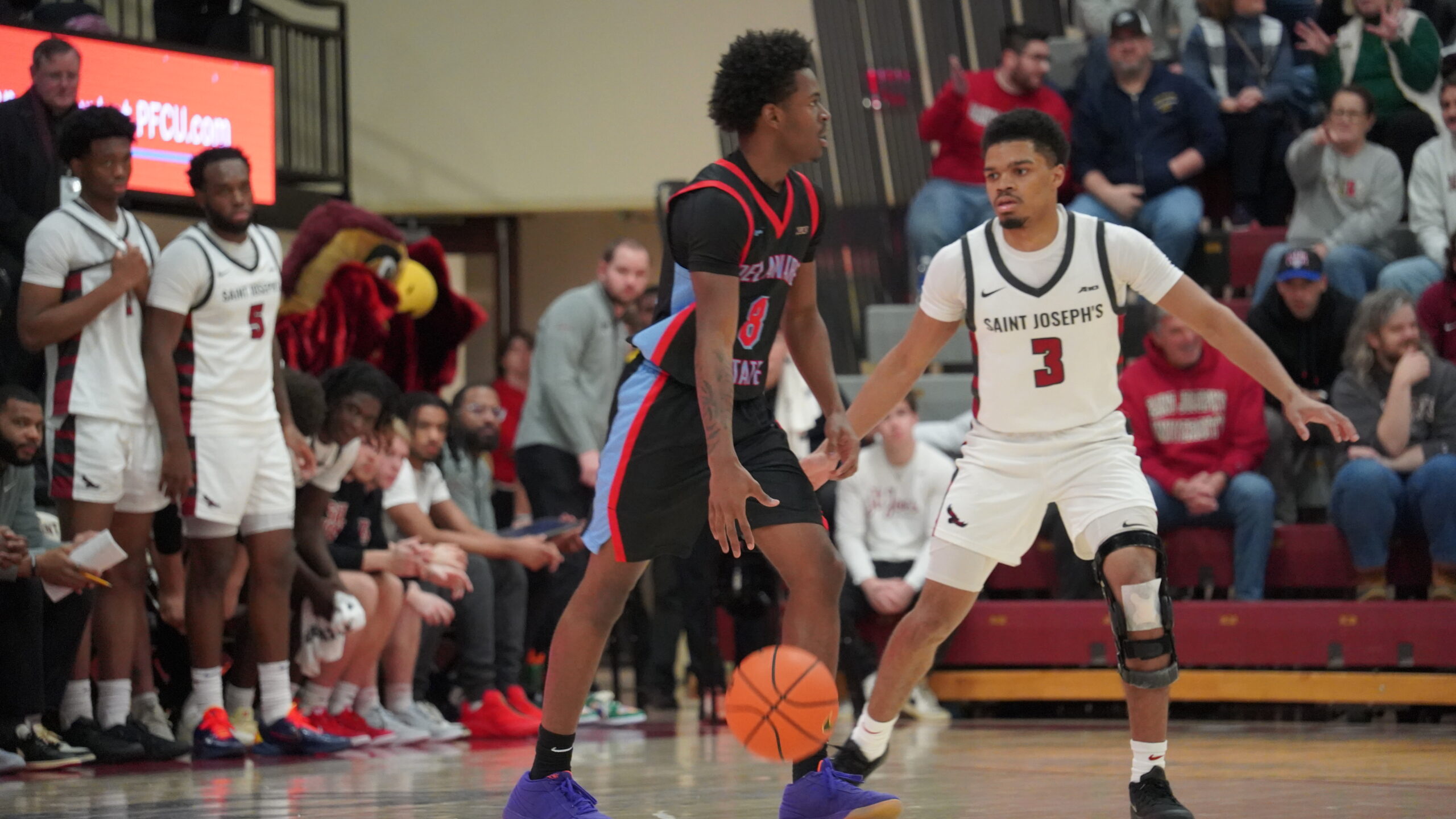
HBCU ORIGINAL
Okojie’s Double-Double Lifts Howard Past Drexel in Philadelphia
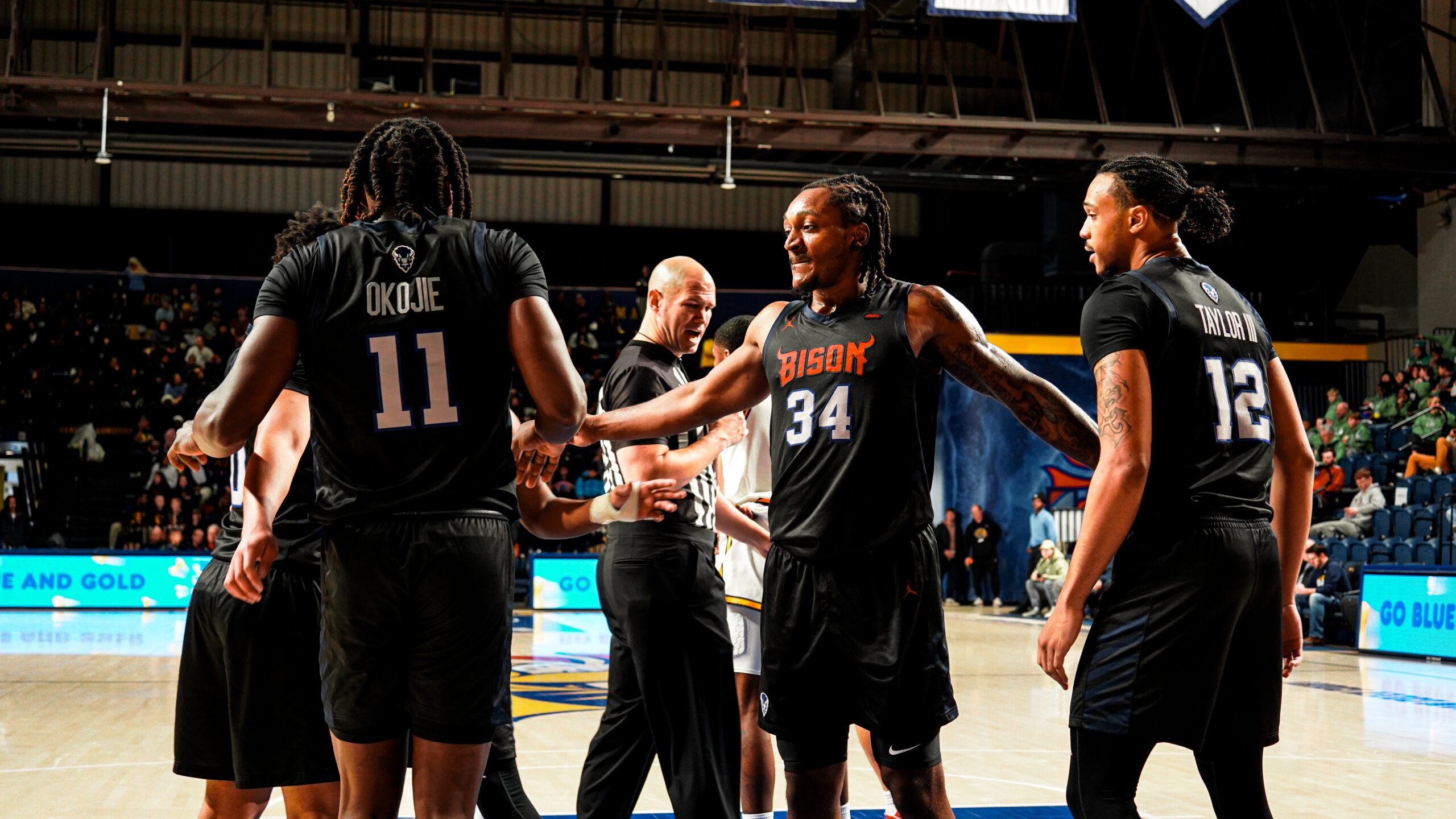
PHILADELPHIA — Ose Okojie delivered a composed, physical performance on both ends, finishing with 17 points and 10 rebounds as Howard held off Drexel, 74-66, on Tuesday night.
The victory marked Howard’s fourth straight win and its first true road victory of the season after three previous attempts. The Bison (8-5) controlled the game early and leaned on efficiency and free-throw shooting down the stretch to seal the win inside Drexel’s home arena.
Howard shot nearly 48 percent from the field and an impressive 92 percent at the free-throw line, knocking down 23 of 25 attempts. Cam Gillus filled the stat sheet with 16 points, nine rebounds, and six assists, while Bryce Harris scored 13 points, including seven free throws. Cedric Taylor III added 12 points, punctuating the Bison’s late-game composure with a key layup in the final two minutes.
The Bison seized control early, building a 36-25 halftime lead behind Okojie’s 11 first-half points and Gillus’ perimeter shooting. A Gillus three midway through the opening half gave Howard a lead it would not relinquish after the first two minutes of play, with the margin ballooning to as many as 16 points.

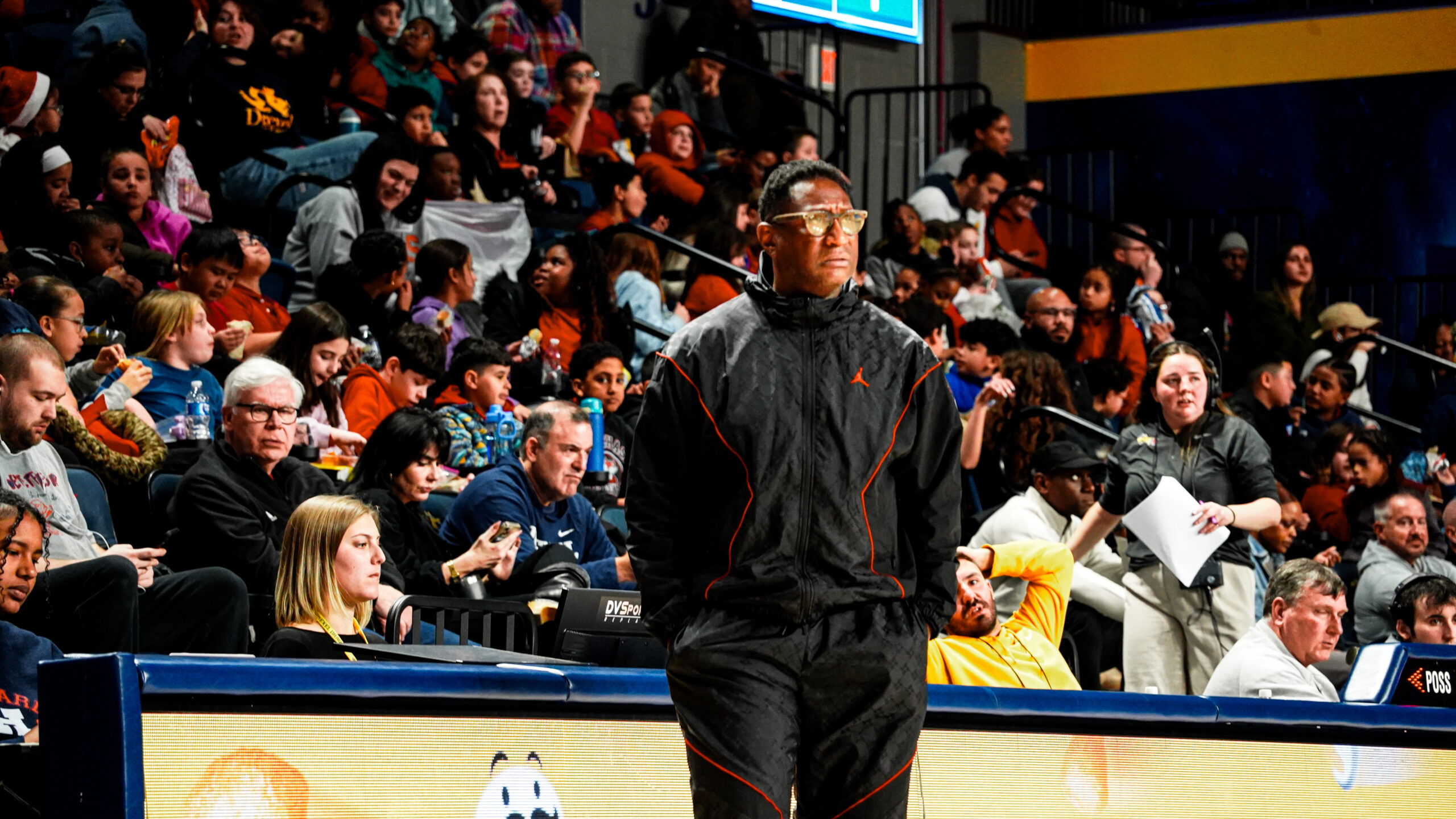
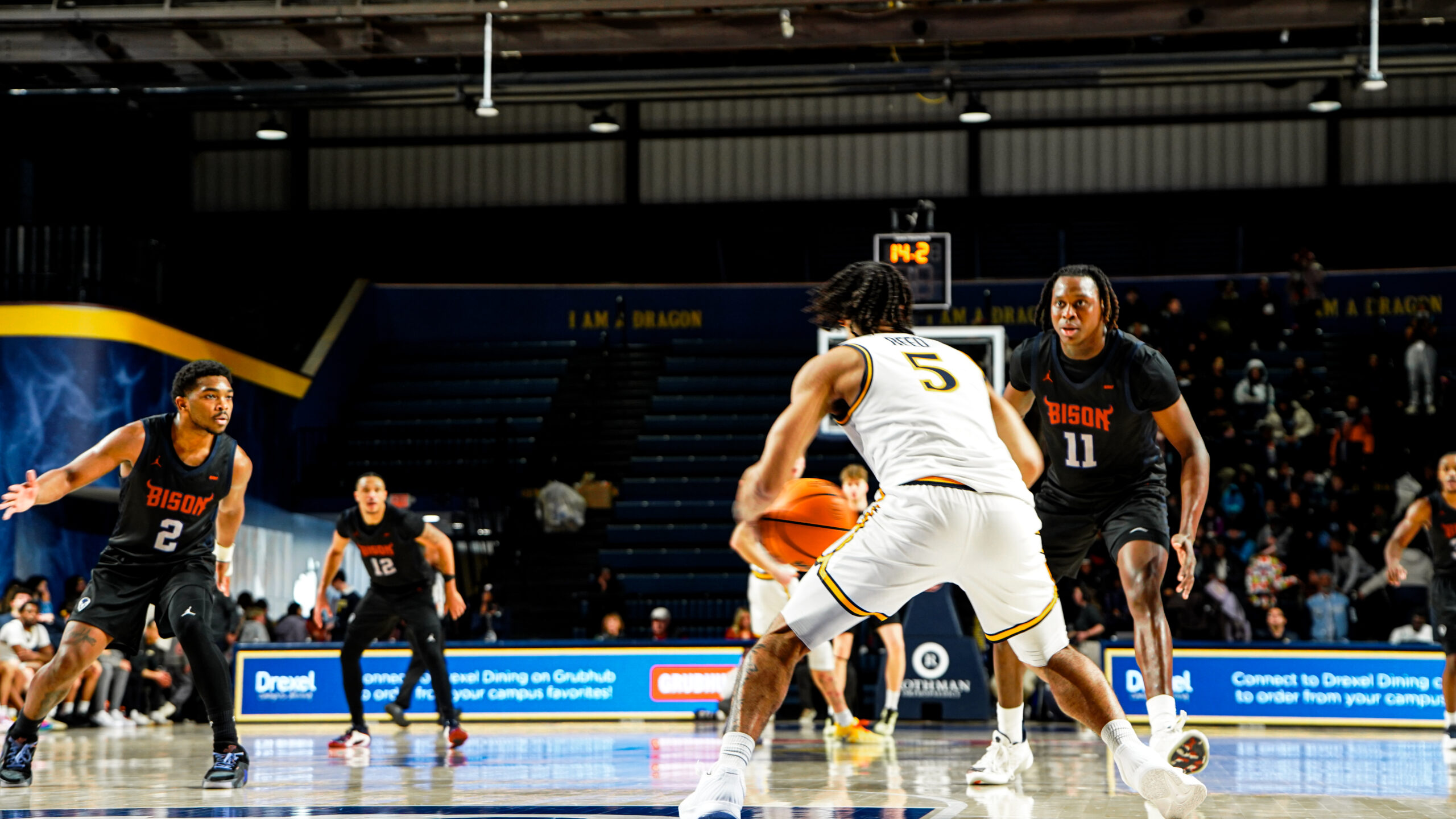
Drexel (4-7) made multiple pushes in the second half behind a career night from Kevon Vanderhorst. The guard poured in 30 points on 8-of-11 shooting, including four three-pointers, and went 10-for-11 from the free-throw line. Villiam Garcia Adsten chipped in 11 points, six rebounds, and four assists for the Dragons.
Despite Drexel cutting the deficit to single digits late, Howard’s rebounding advantage (36-22) and poise at the line proved decisive. Okojie secured the defensive rebound on Drexel’s final missed free throw with eight seconds remaining, effectively closing the door.
Howard never trailed after taking a 7-5 lead early in the first half, continuing to show growth away from home as it builds momentum heading deeper into the season.
-
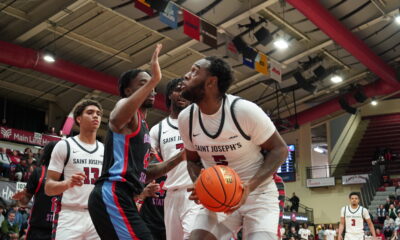
 HBCU ORIGINAL2 months ago
HBCU ORIGINAL2 months agoDelaware State Shows Fight in Road Matchup vs Saint Joseph’s
-
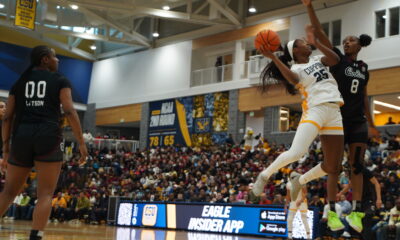
 Sports4 weeks ago
Sports4 weeks agoCoppin State Hosts No. 2 South Carolina in Baltimore
-
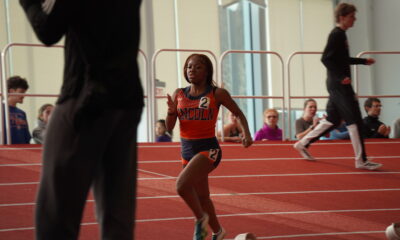
 HBCU ORIGINAL2 weeks ago
HBCU ORIGINAL2 weeks ago🦁🐺 HBCU Original — Lincoln & Cheyney Deliver Big Performances at Widener Schuylkill Showdown
-
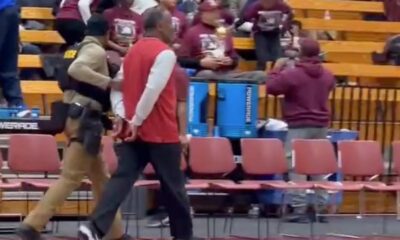
 HBCU ORIGINAL2 weeks ago
HBCU ORIGINAL2 weeks agoTuskegee Coach Benjy Taylor Escorted Off Court in Handcuffs After Postgame Incident
